Tools Required
SA91112T Differential End Play Gage
SA9132S Lower Control Arm Ball Stud Separator
SA9165T Oil Cooler Line Flusher
Removal Procedure
- Position the vehicle on the hoist.
- Disconnect the negative battery terminal.
- Remove the air induction system.
- Remove the air filter box.
- Remove the transaxle strut-to-midrail bracket fastener.
- Loosen the transaxle strut-to-transaxle bracket fastener and flip the transaxle strut out of the way.
- Disconnect the positive battery cable from the battery.
- Remove the hold-down retaining nut and screw. Lift them off battery hold-down retainer.
- Lift the battery out of the vehicle, and place the battery in a safe location.
- Remove the battery tray.
- Disconnect the following items:
- Remove the top 2 converter housing-to-engine bolts.
- Disconnect the spark plug wires from the coil towers.
- Disconnect the electrical connectors at the electronic ignition (EI) module.
- Remove the bolts from EI module and remove.
- Wire the radiator to the upper radiator support to hold the radiator in place as the frame is removed.
- Install the engine support bar assembly SA9105E
- Place the engine support bar in the vehicle as shown. Place the support bar feet on the outer edge of the shock tower.
- Connect the bar hooks to the engine support brackets.
- Position the stabilizer foot on the engine block to the right of the engine oil dipstick.
- Adjust the hooks and the stabilizer to remove looseness.
- Raise the vehicle and drain the transaxle fluid.
- Remove the front wheels.
- Remove the right and left splash shields. LHD shown, RHD similar.
- Remove the front engine splash shield from the vehicle. For coupes, remove the left and right lower fascia braces.
- Remove the engine strut cradle bracket-to-cradle fasteners.
- Remove the transaxle mount-to-frame fastener. Manual transaxle shown, automatic transaxle similar.
- Remove the front exhaust pipe-to-manifold fasteners.
- Remove the front exhaust pipe-to-catalytic converter fasteners.
- Remove the exhaust pipe support bracket-to-exhaust pipe fasteners.
- Remove the front exhaust pipe from the vehicle.
- Remove the steering gear to cradle fasteners. Power steering gear shown, manual steering gear similar. LHD shown, RHD similar.
- Support the steering gear with a safety wire.
- For RHD Domestic vehicles only.
- Remove the brake pipe bracket push pin at the rear of the cradle.
- Remove the engine-to-transaxle stiffening brace bolts and remove the brace.
- Remove the dust cover to converter housing bolts and remove the dust cover.
- Remove the torque converter-to-flywheel bolts.
- Remove the cotter pin from the lower ball joints and discard. Loosen the nut and back the nut off until the top of the nut is even with the top of the threads. Right side shown, left side opposite.
- Repeat for the opposite side.
- Separate the ball joint from the lower control arm using tool SA9132S and remove the nut. Left side shown, right side opposite.
- Repeat for the opposite side.
- Separate the left side axle from the transaxle using a large screwdriver or appropriate pry bar.
- Remove the axle only part way and install the axle seal protector SA9112T . Use a seal protector that was previously used or open up protector at the split line and install it around the axle and into the seal. This will protect the seal from being cut by the shaft splines.
- Separate the right side axle from the intermediate shaft.
- On DOHC-LL0 engines, remove the intake bracket to intake manifold bolt.
- Remove the intake bracket-to-intermediate shaft support bolt.
- Remove the 2 intermediate shaft support to engine block bolts.
- Carefully slide the intermediate shaft out of the transaxle.
- Use the powertrain support dolly and two 4 in x 4 in x 36 in pieces of lumber to support the frame on the dolly.
- Disconnect the transaxle cooler lines from the transaxle. Use a piece of 3/8 inch rubber hose to connect the 2 cooler lines together. This will prevent oil from dripping and dirt from entering the lines.
- Remove the 4 cradle-to-body bolts. Carefully lower the cradle from the vehicle with the powertrain support dolly.
- Support the transaxle securely with jack.
- Remove the 2 bottom torque converter housing-to-engine bolts.
- Separate the transaxle from the engine and lower the transaxle.
- Lower the transaxle enough to reach the transaxle shifter cable. Disconnect the shifter cable from the transaxle.
- Remove the shifter cable from the converter housing by squeezing the release tabs.
- Lower the transaxle from vehicle.
Caution: Refer to Vehicle Lifting Caution in the Preface section.

Caution: Refer to Battery Disconnect Caution in the Preface section.

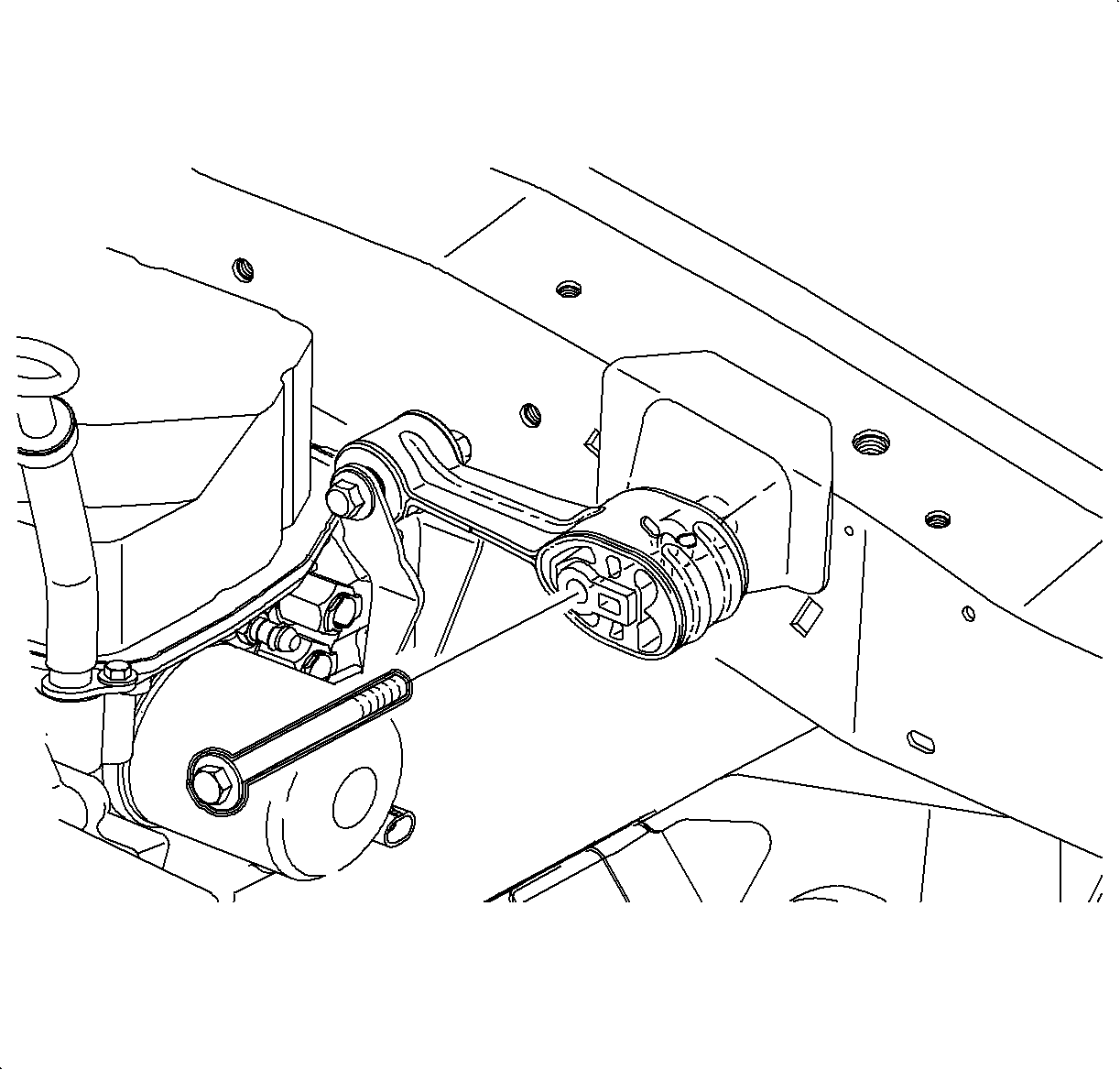


Important: One bolt is located in the fender well.

| • | Solenoid connector |
| • | Vehicle speed and input shaft speed sensors |
| • | The transaxle fluid temperature sensor |
| • | Two ground terminals from top two converter housing bolts |
| • | Ground wire from transaxle range switch |
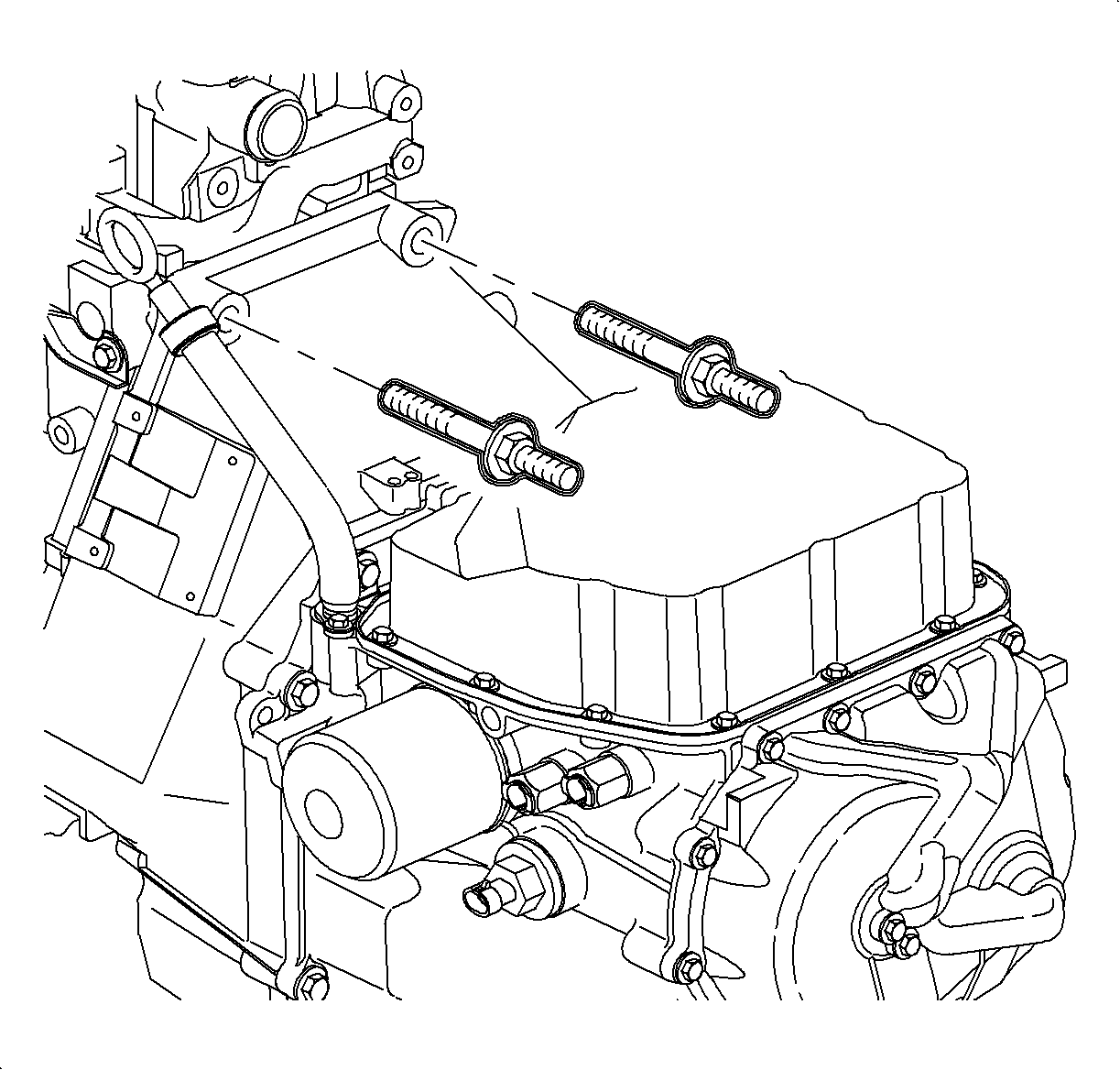
Important: Note which spark plug wire is removed from which coil towers. The spark plug wires must be connected to the correct coil towers.
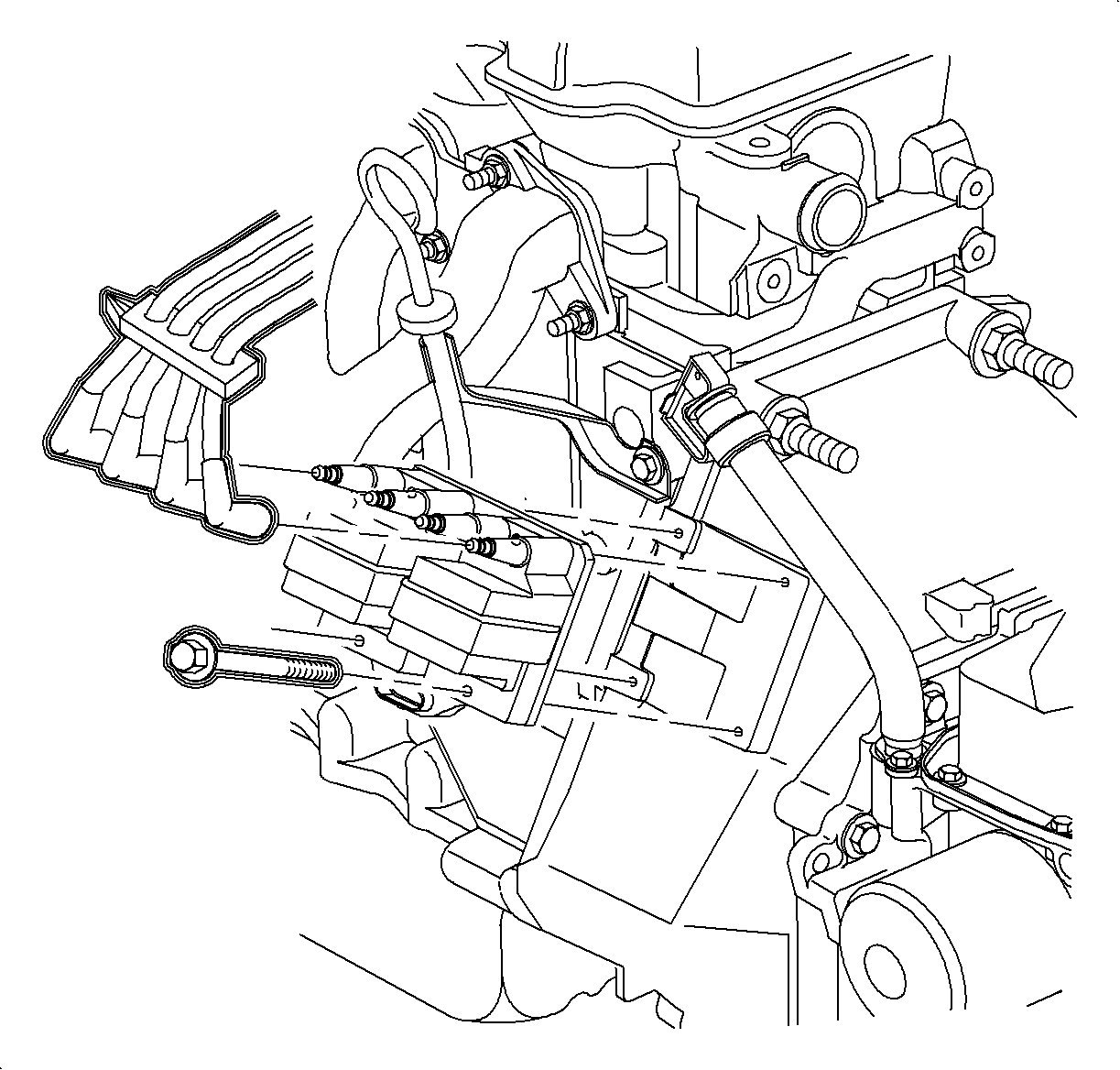
Important: Discard electronic ignition control module bolts and replace with new bolts upon installation.
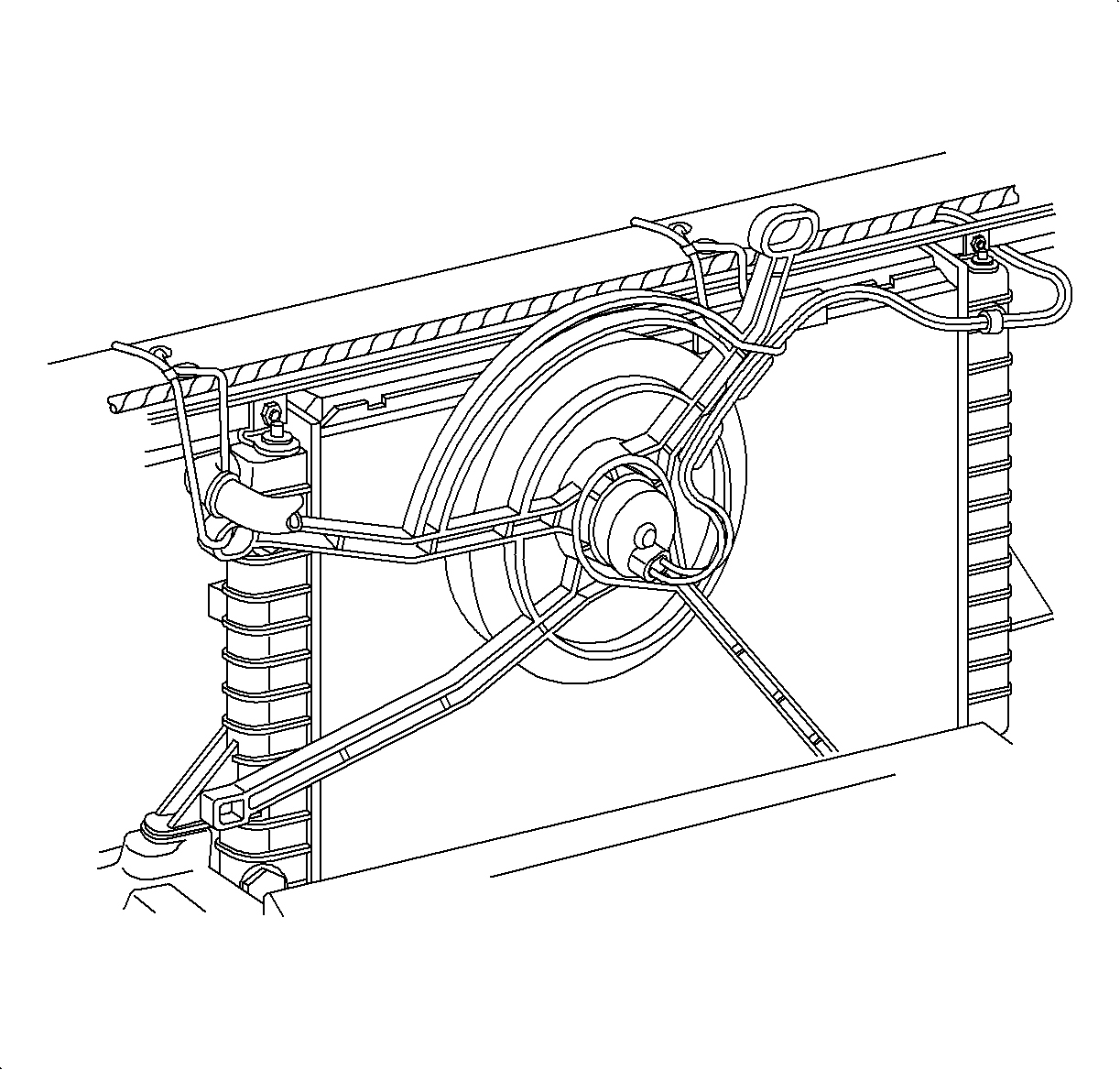
Important: The 2 cross bars on the engine support have 2 settings, 1 for the SOHC-L24-1 and 1 for the DOHC-LL0-2 engine. The setting locations are marked on the bars as shown.
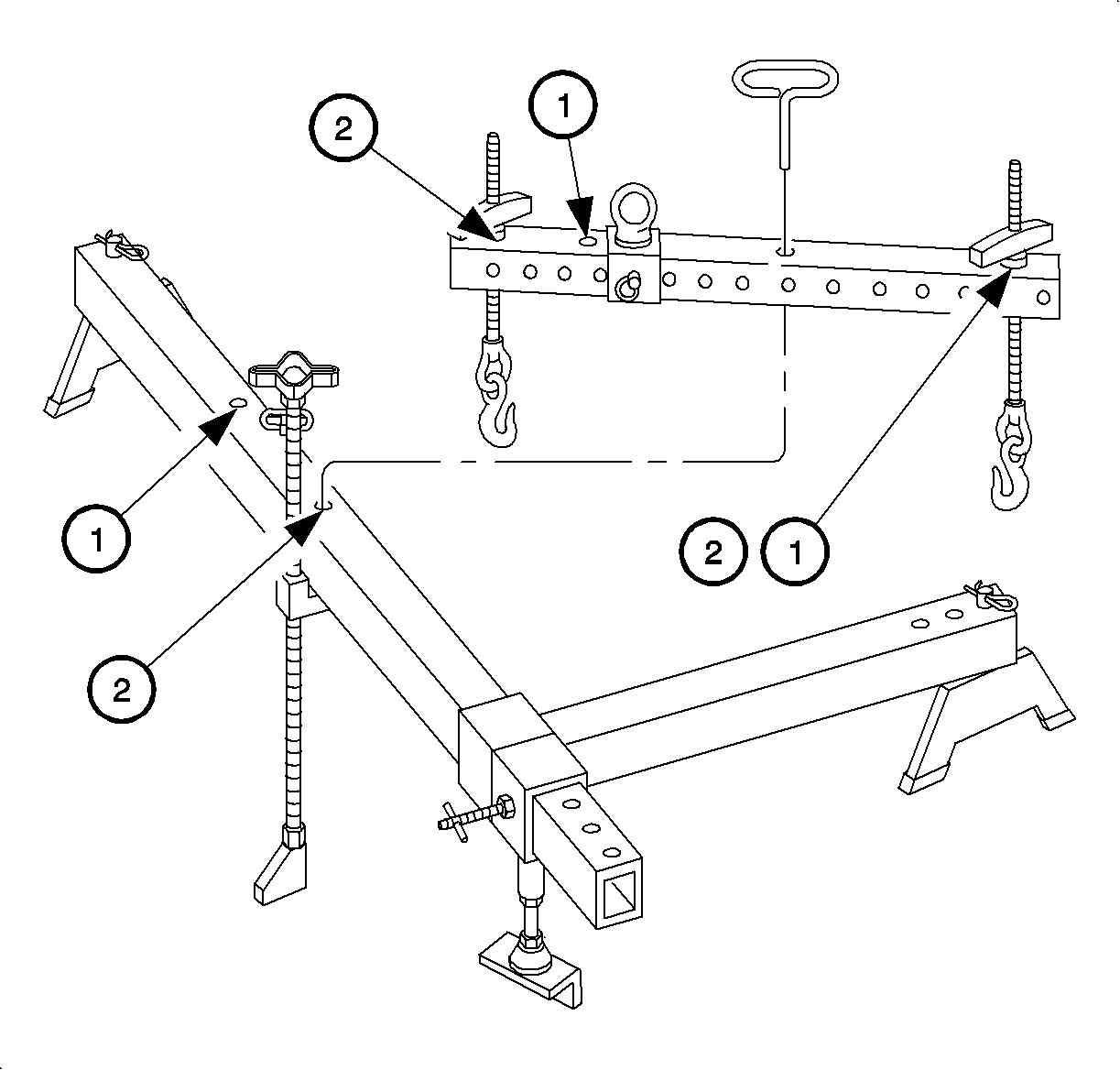
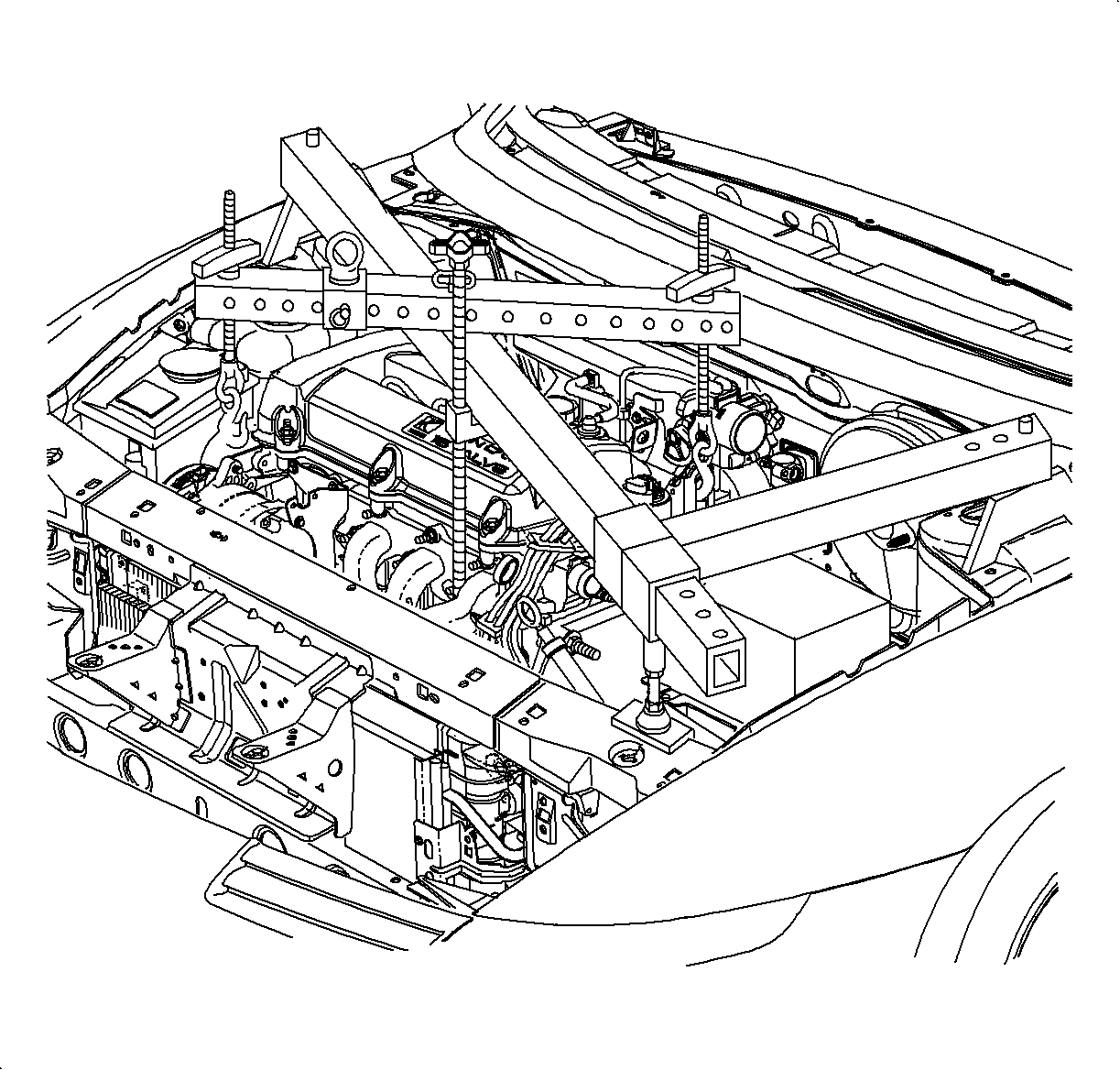
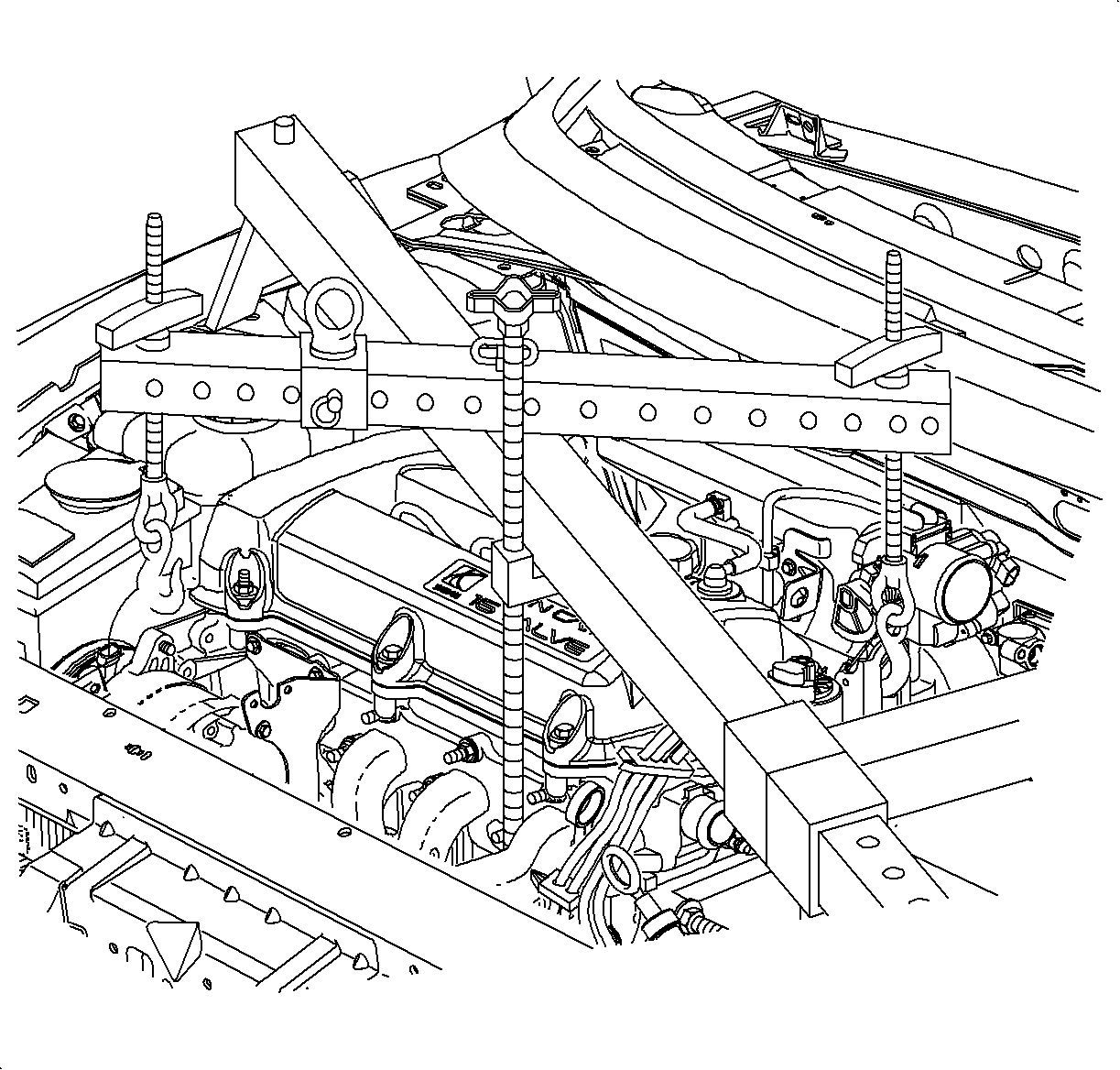
Caution: Refer to Vehicle Lifting Caution in the Preface section.
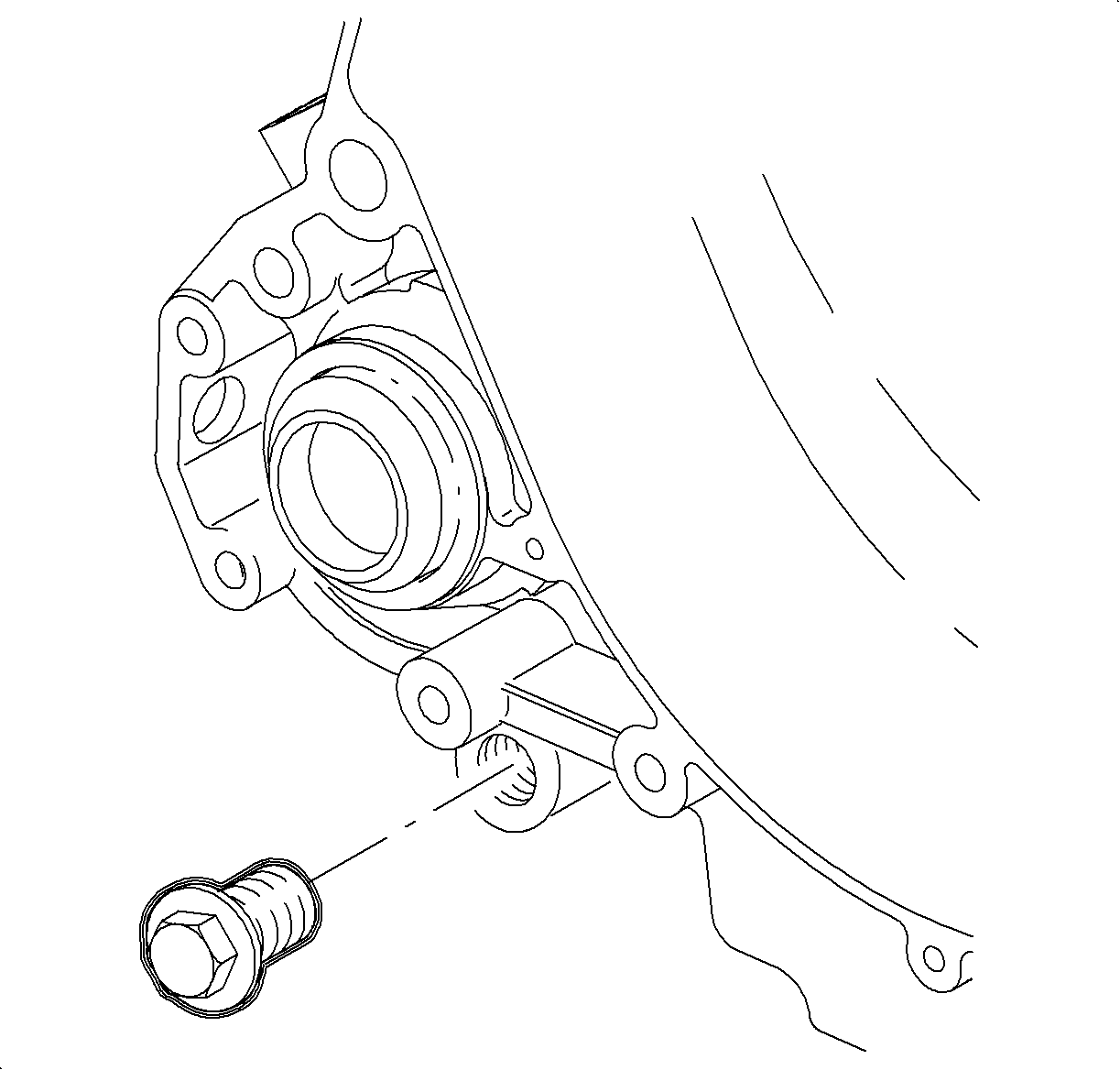

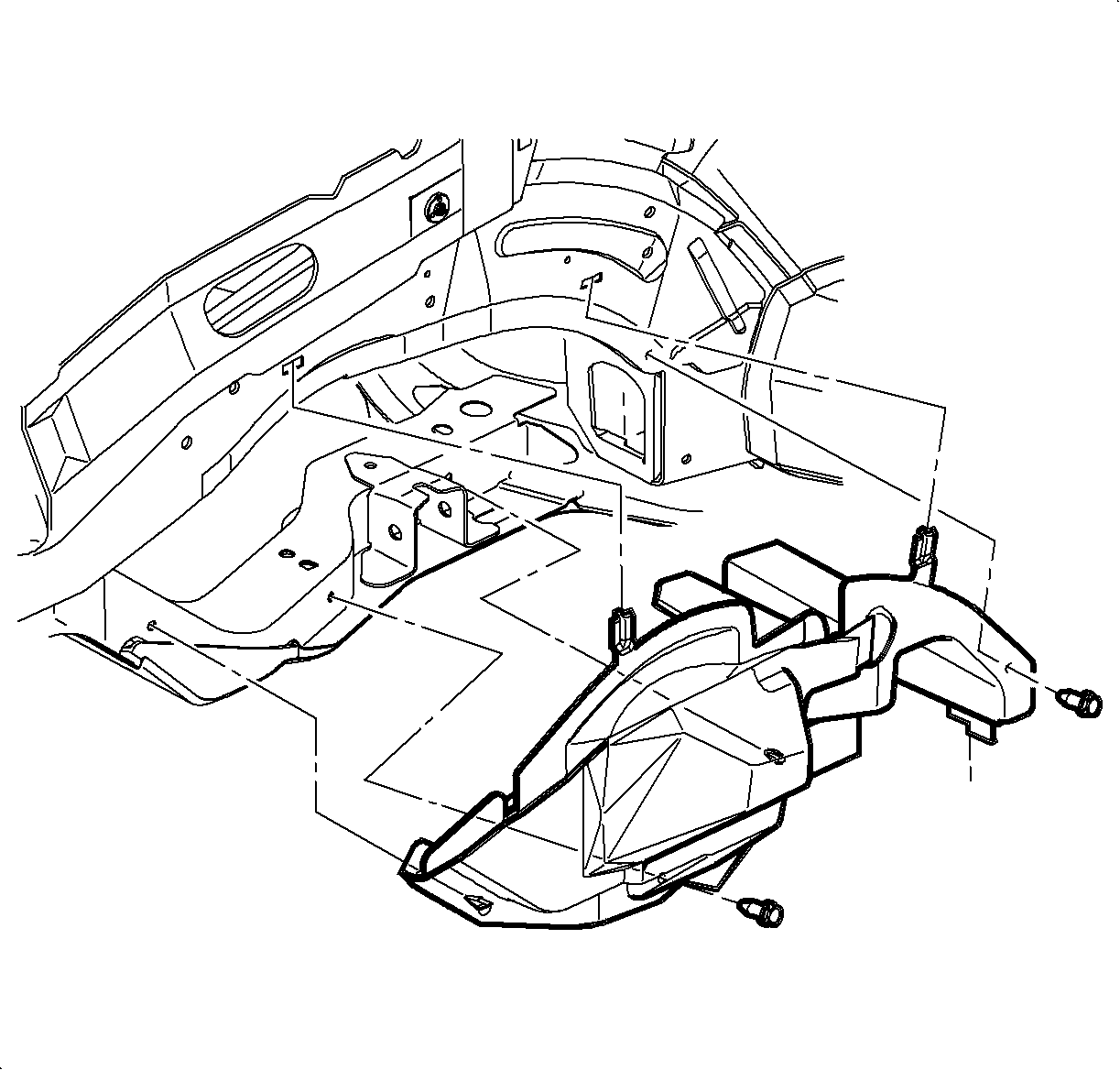
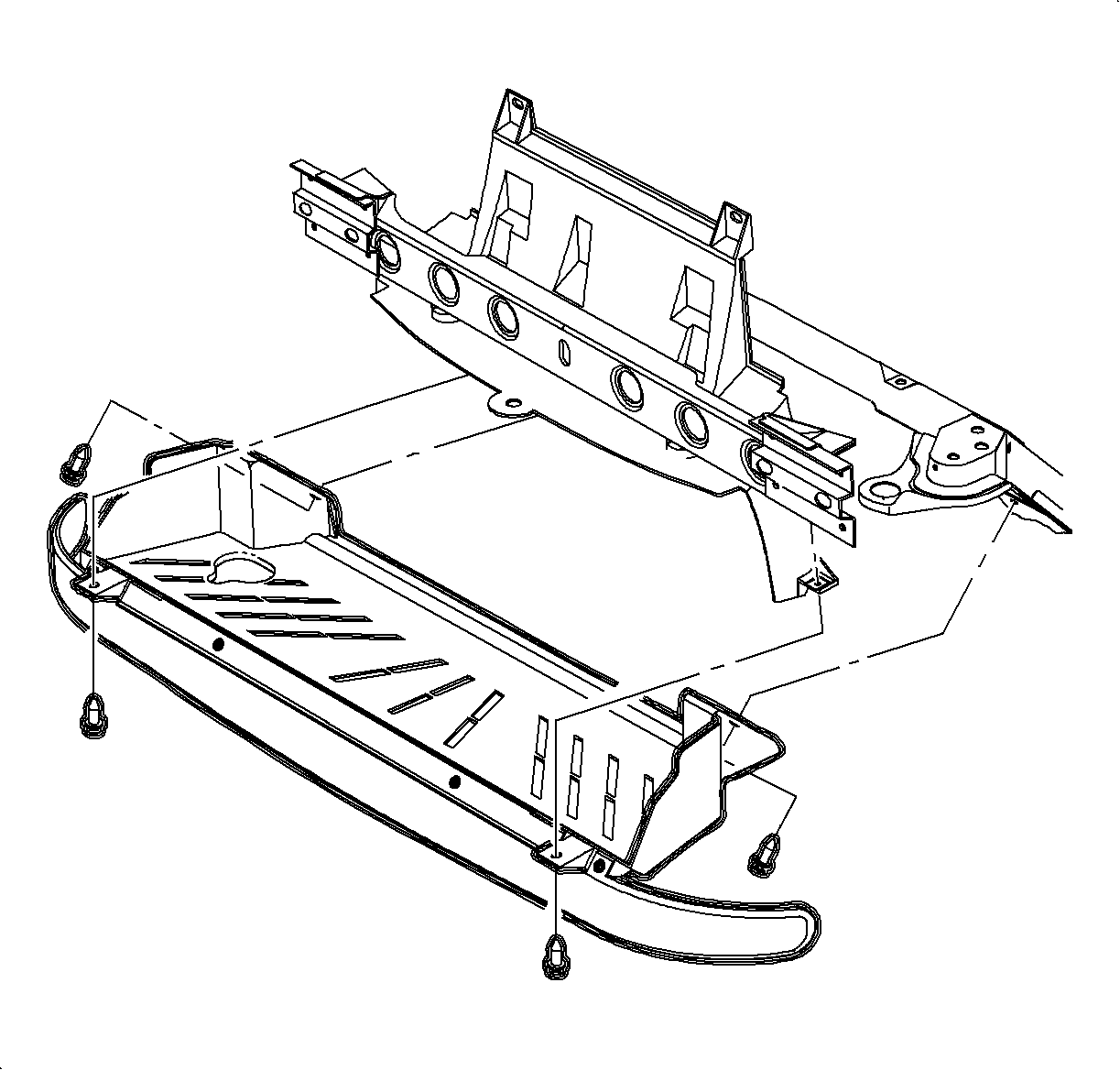
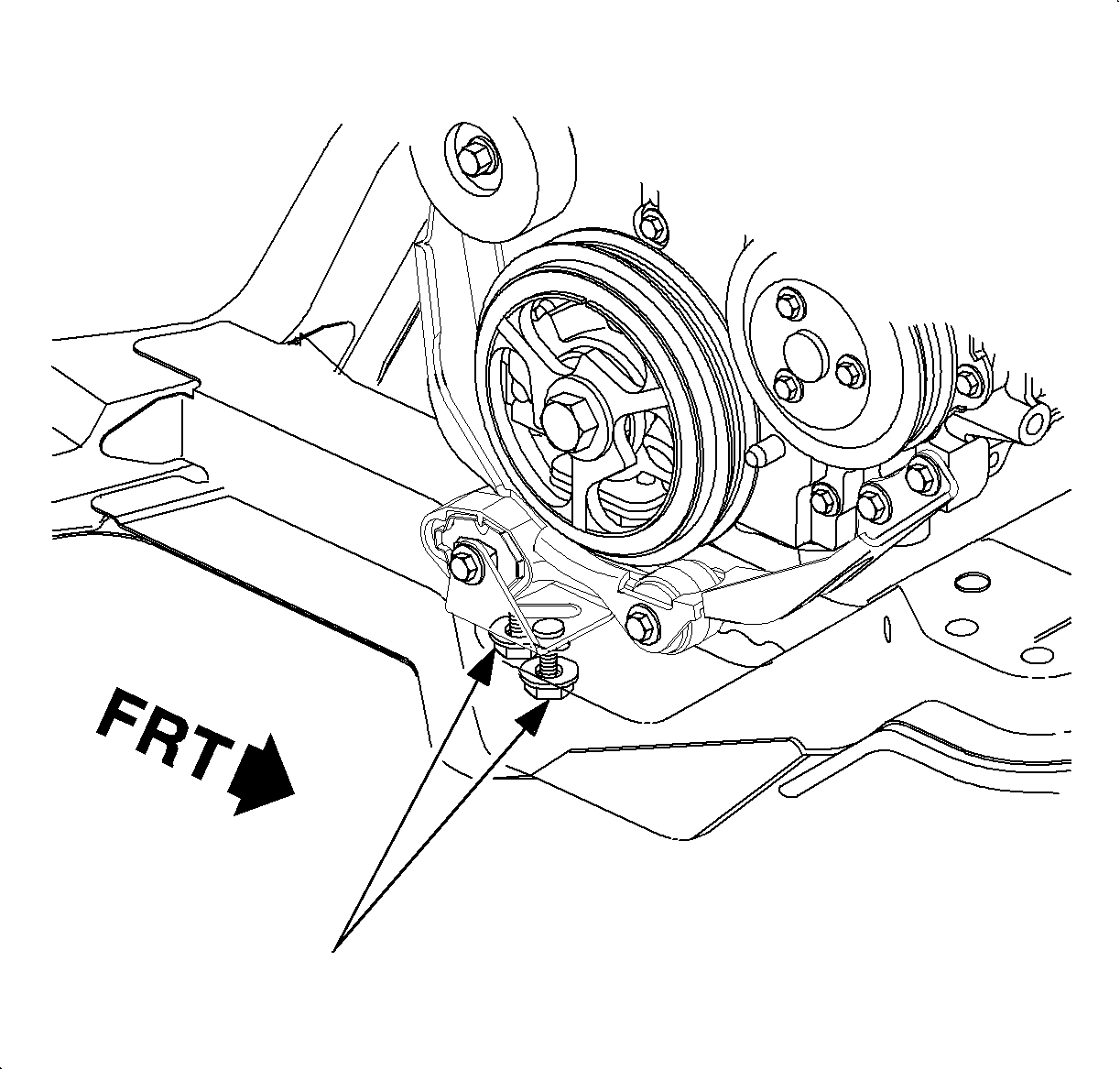
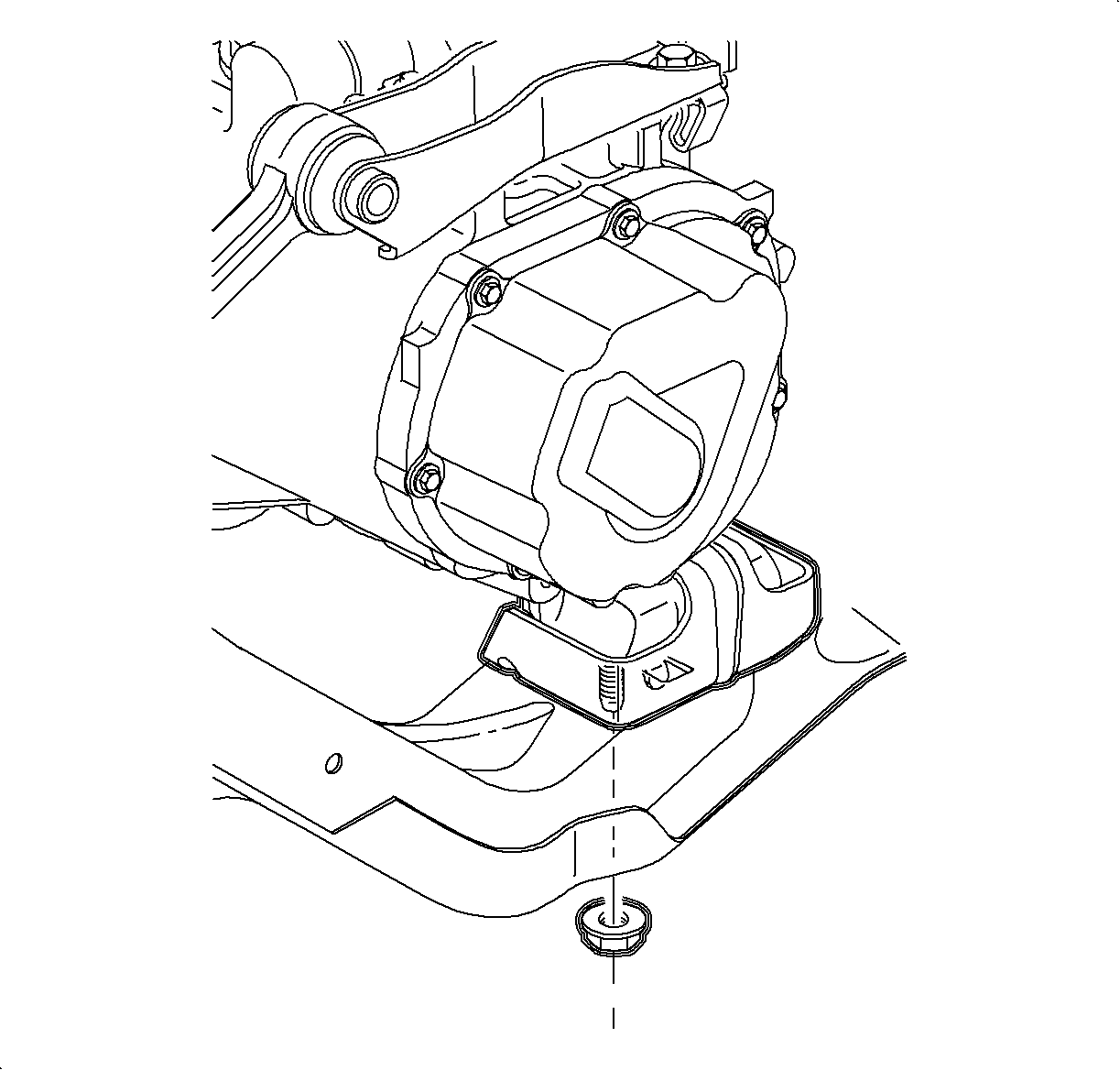
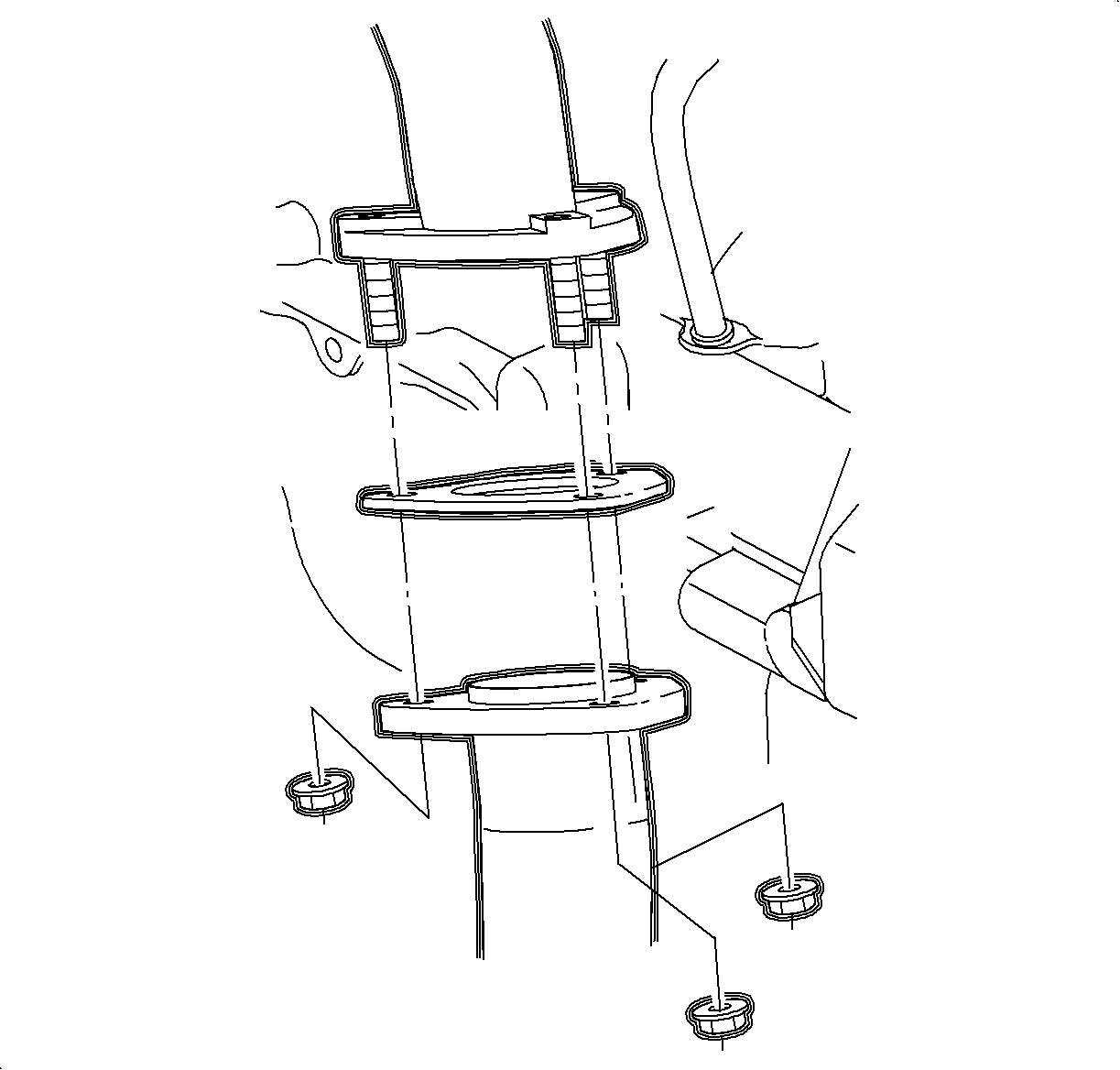
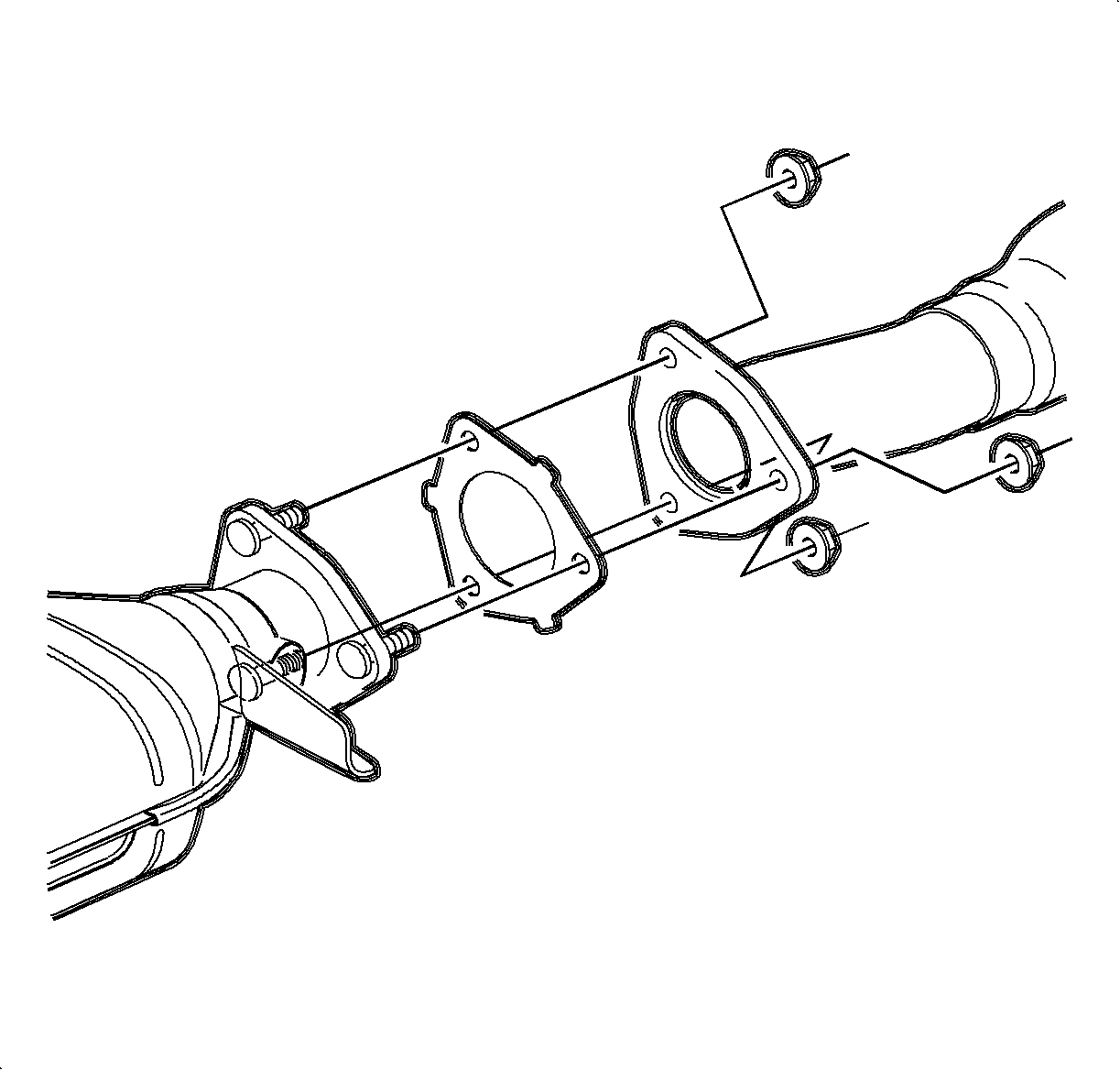
Important: For step 29, LHD illustration shown first, RHD domestic illustration shown second.
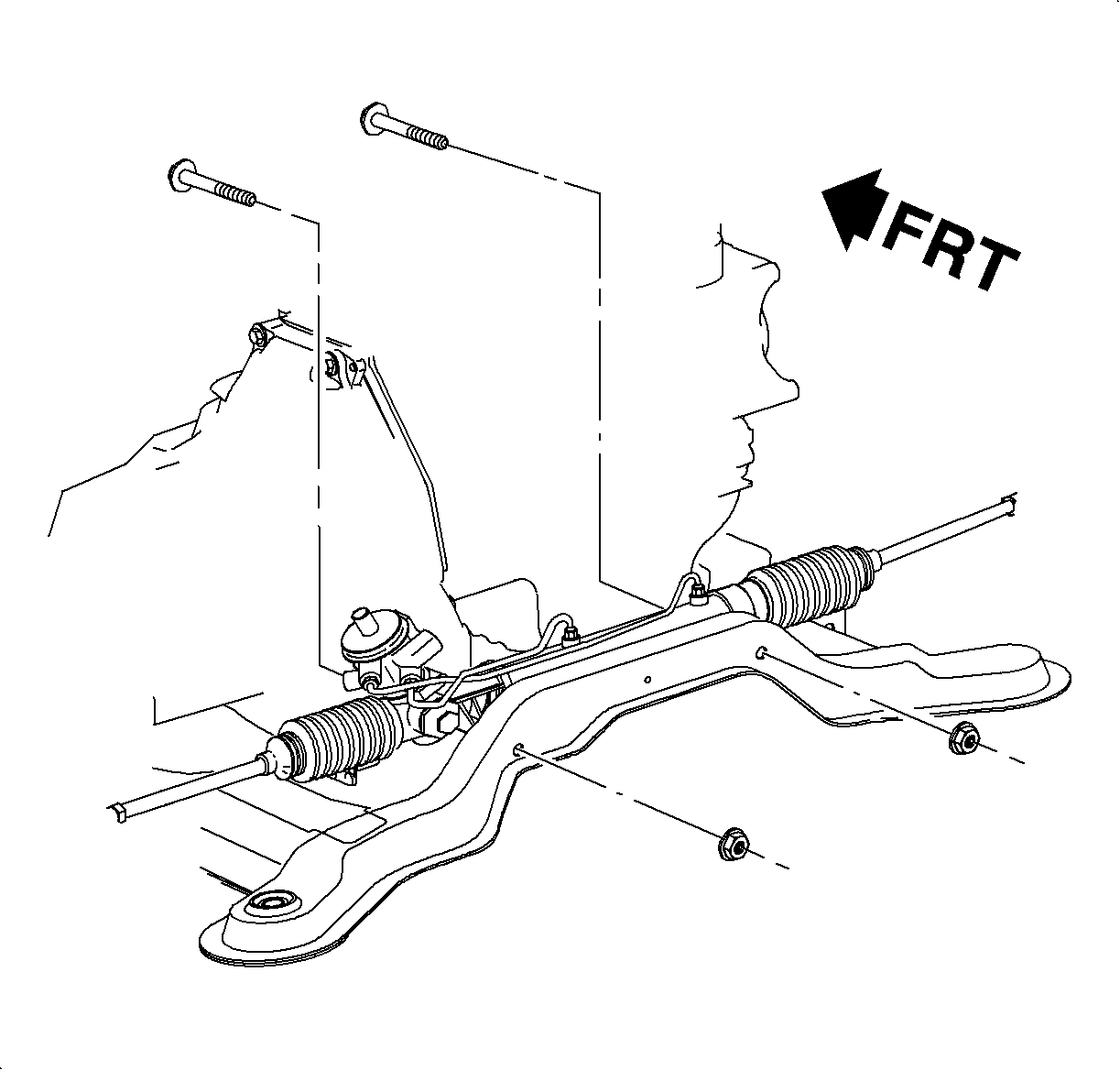
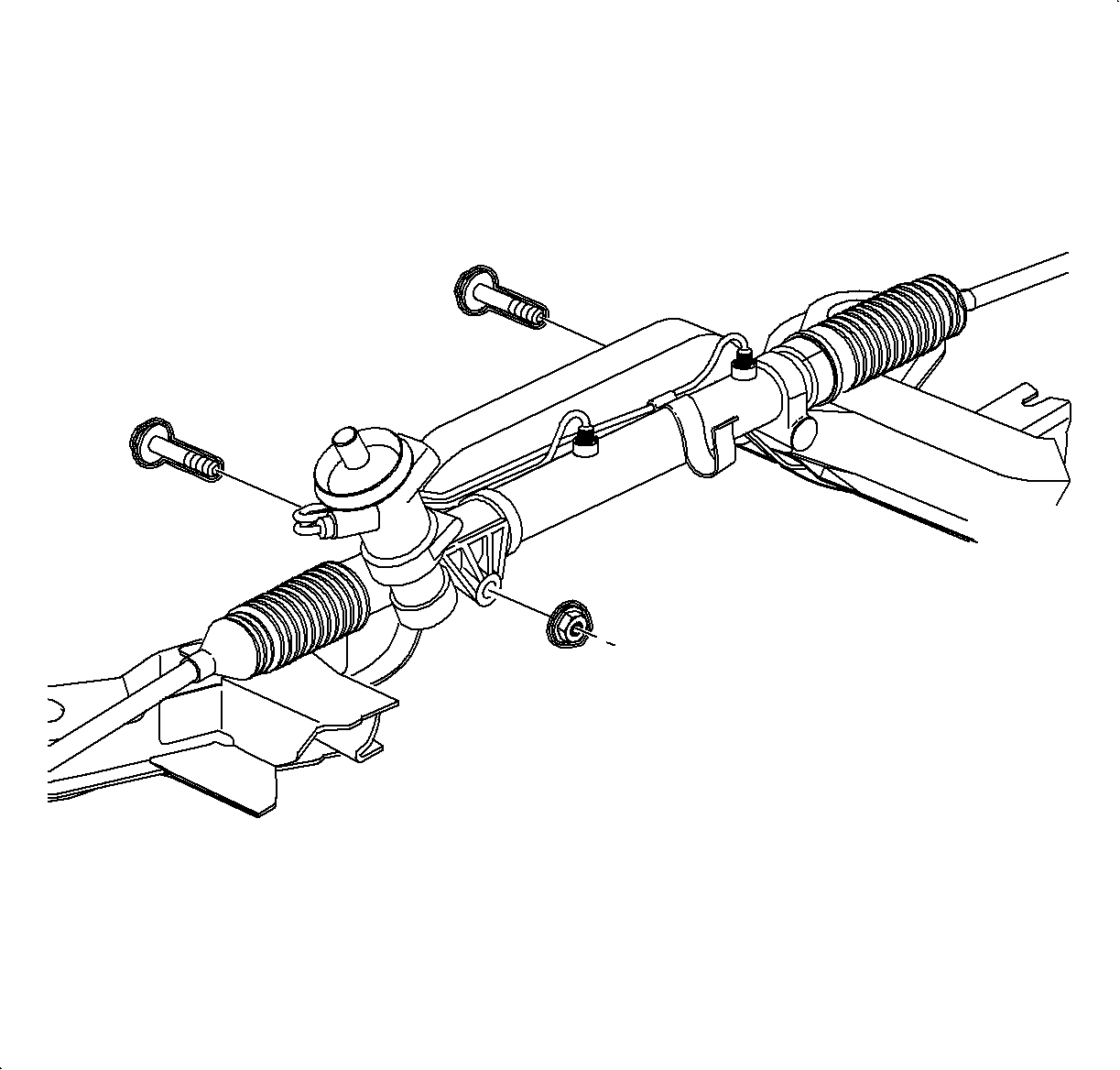
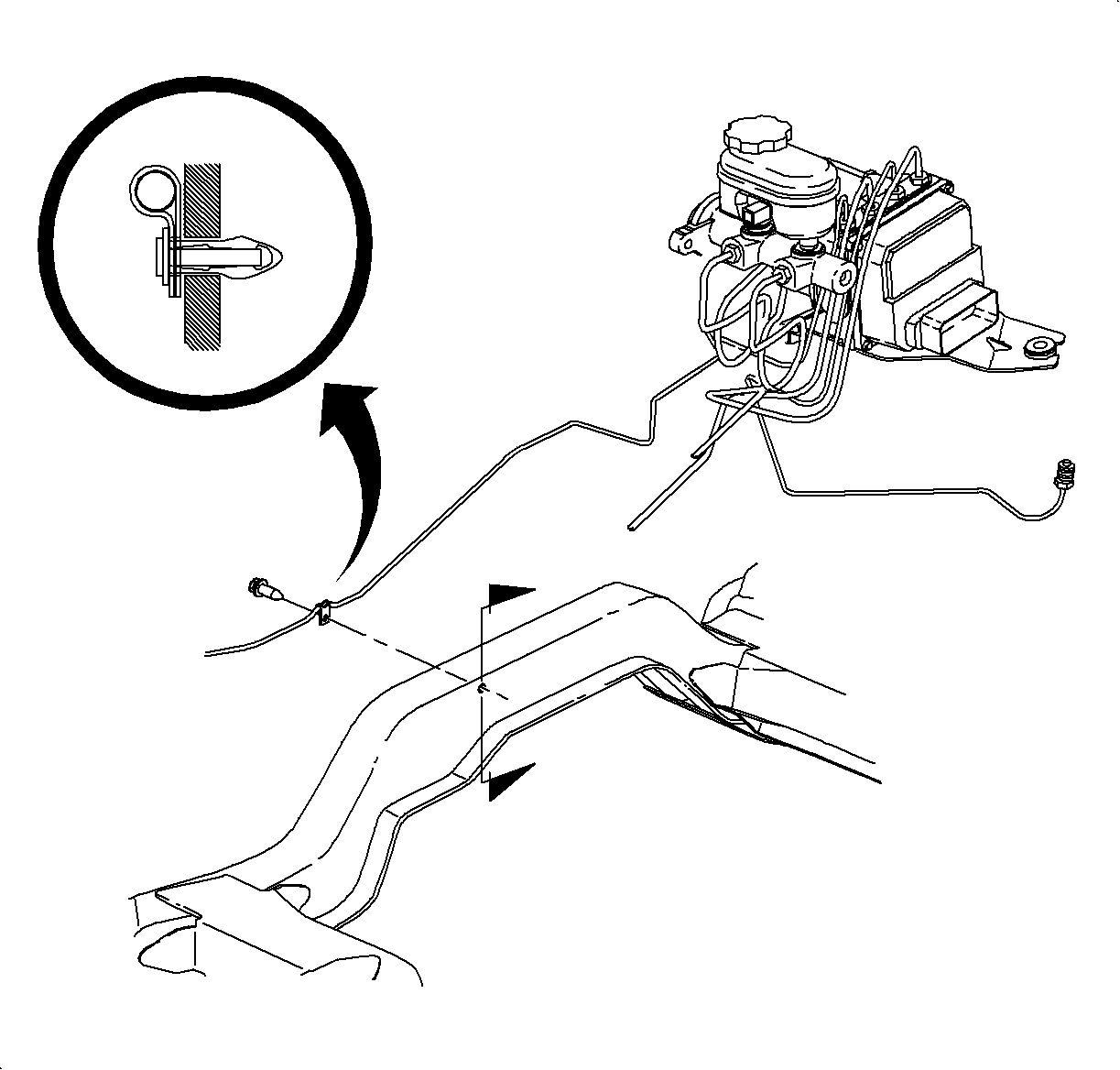
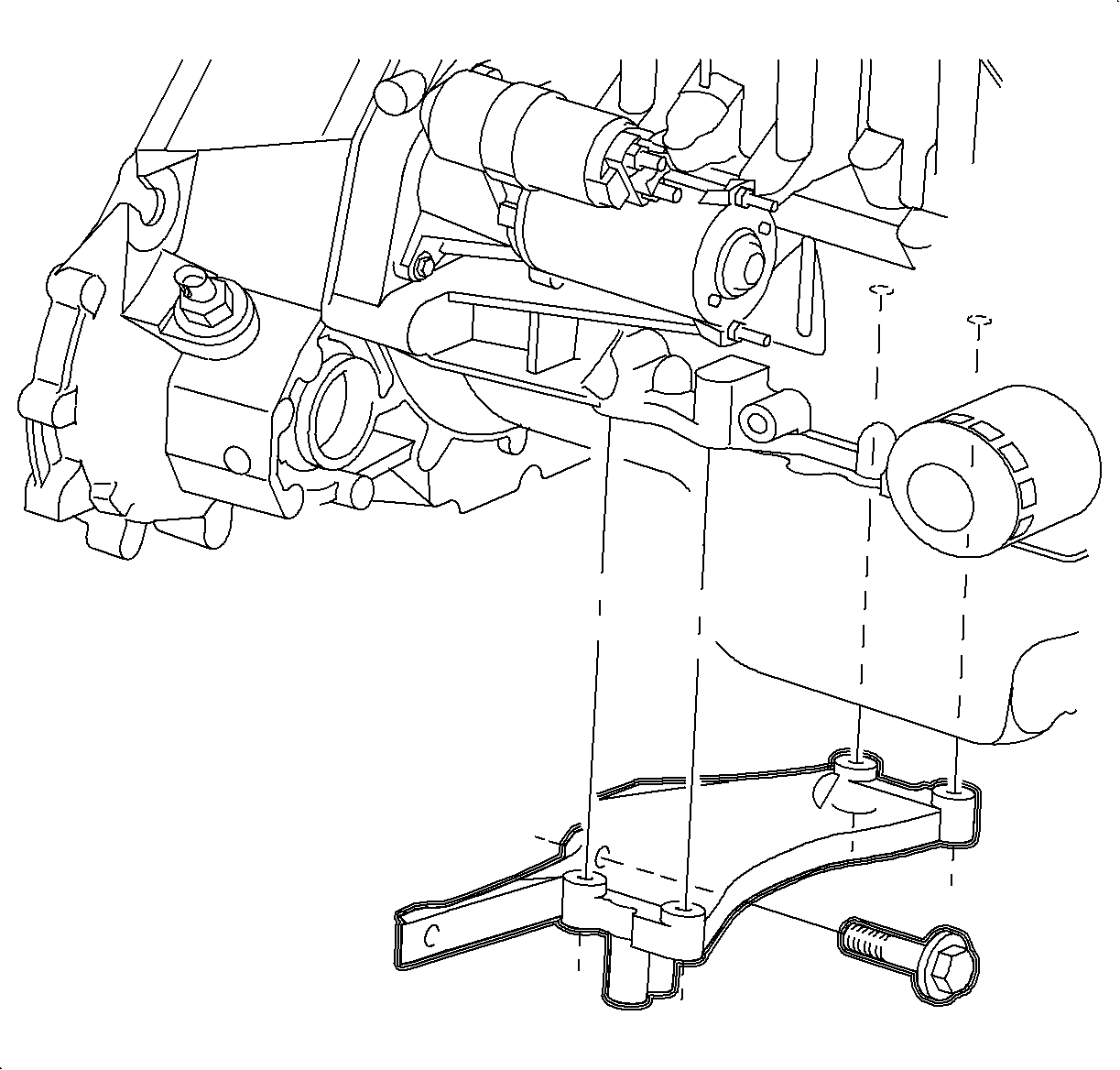
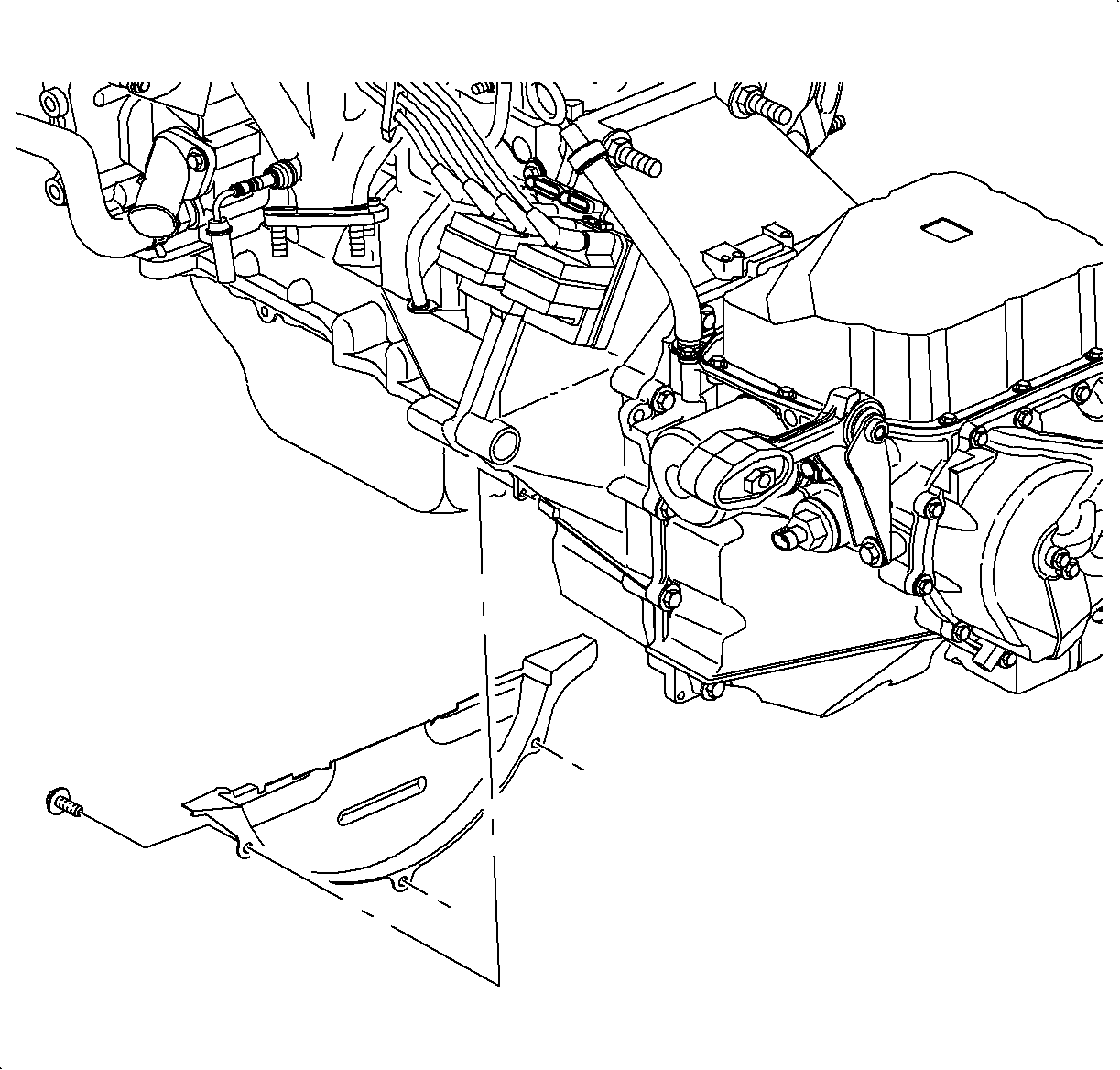
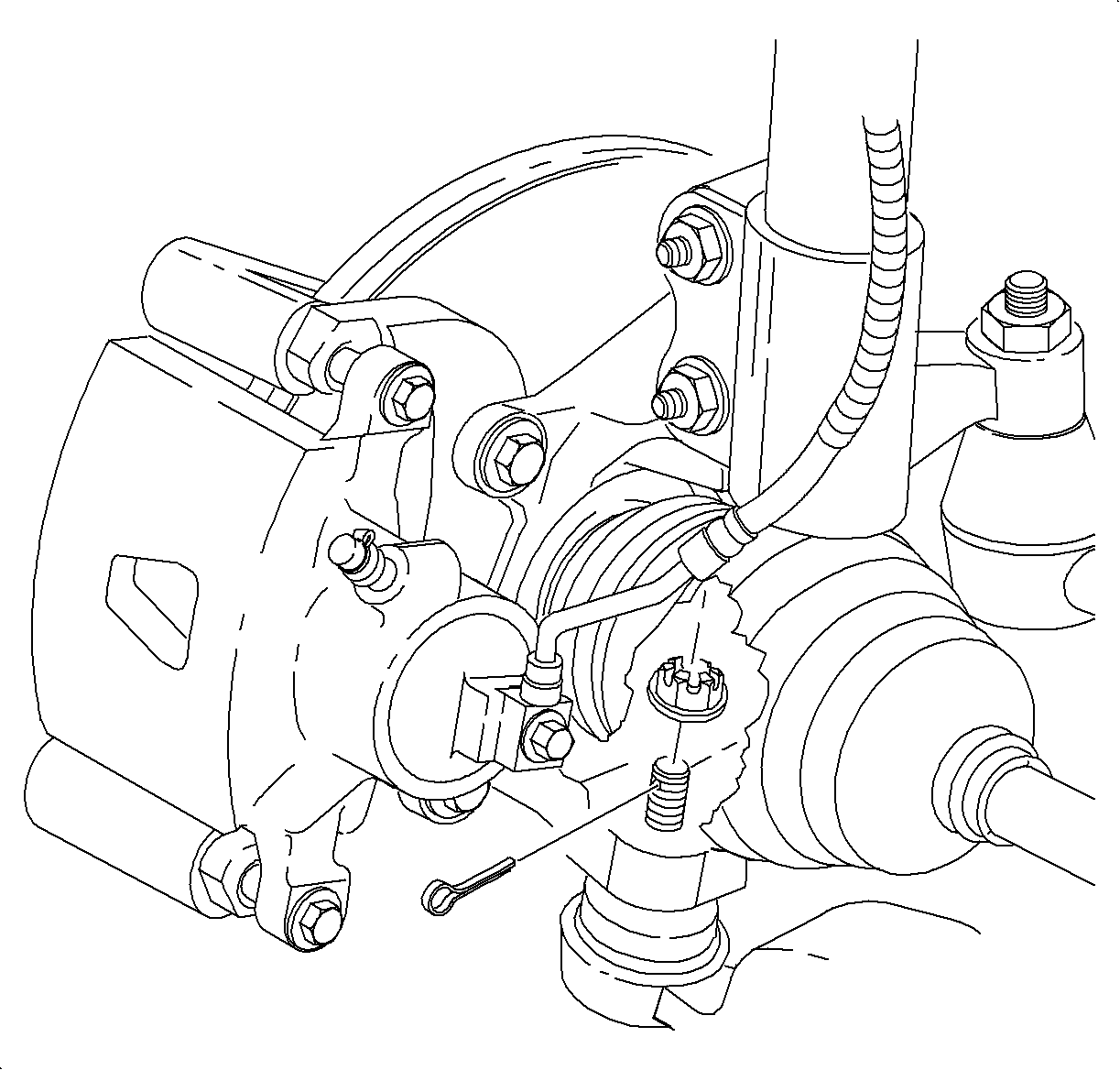
Notice: On ABS equipped vehicles, the outer CV joint has a speed sensor ring. Using the incorrect tool or procedure to separate the control arm from the knuckle can damage the ring, resulting in a loss of ABS operation.
Notice: Do not attempt to separate the joint using a wedge-type tool because seal may be damaged.
Important: It will be necessary to pull down on the lower control arm to remove the castle nut.
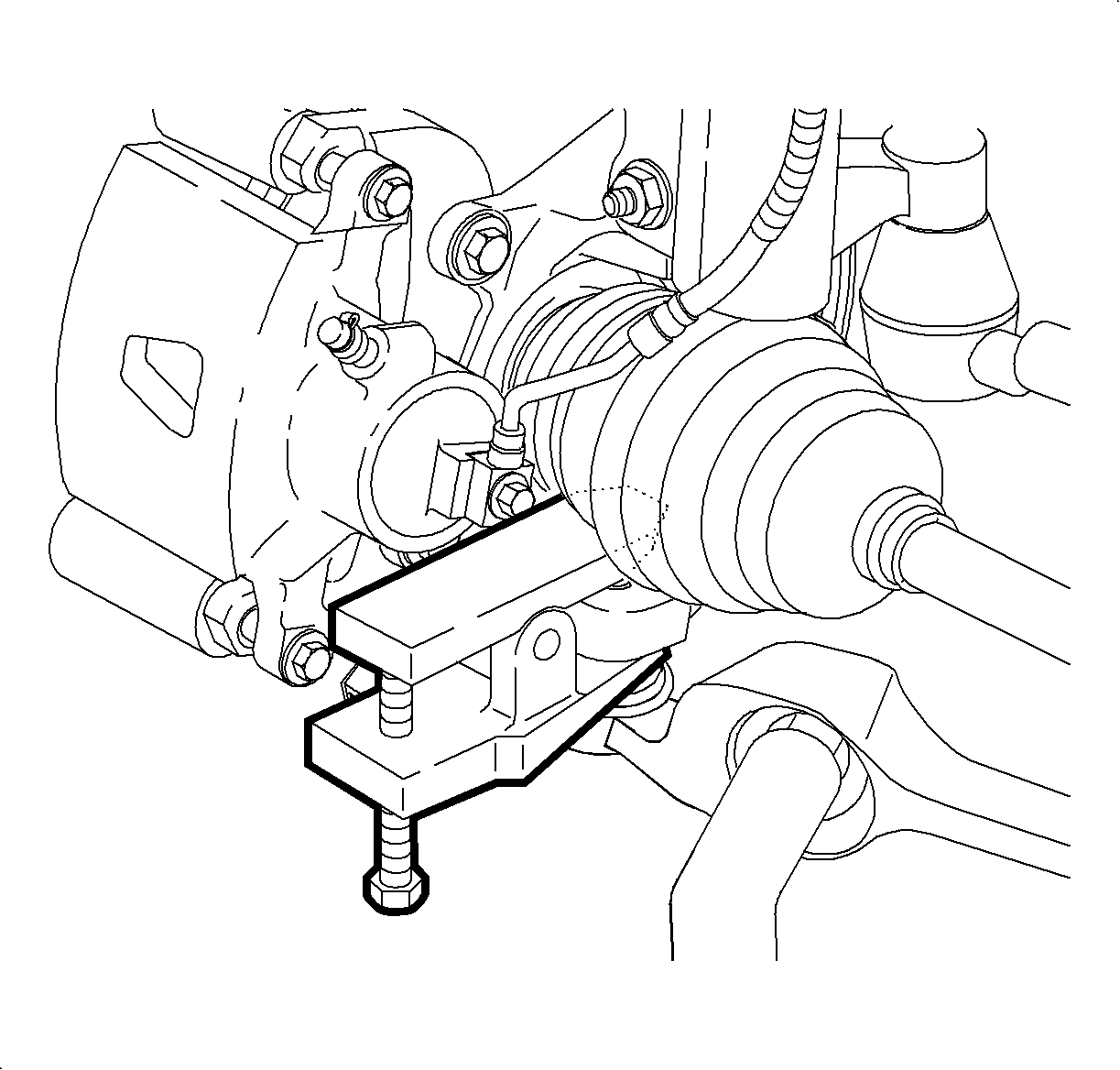
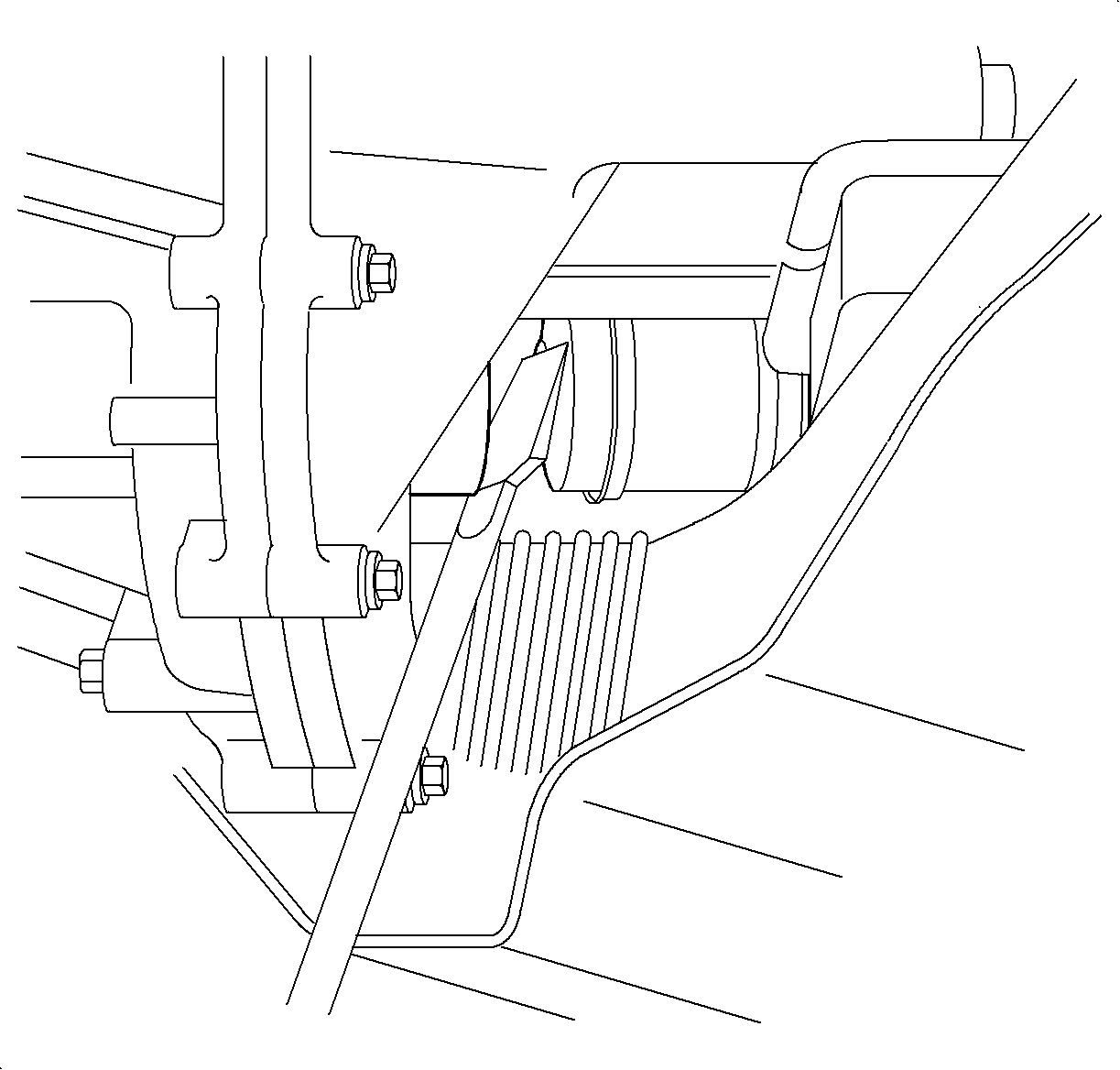
Notice: Be careful not to damage axle deflector ring.
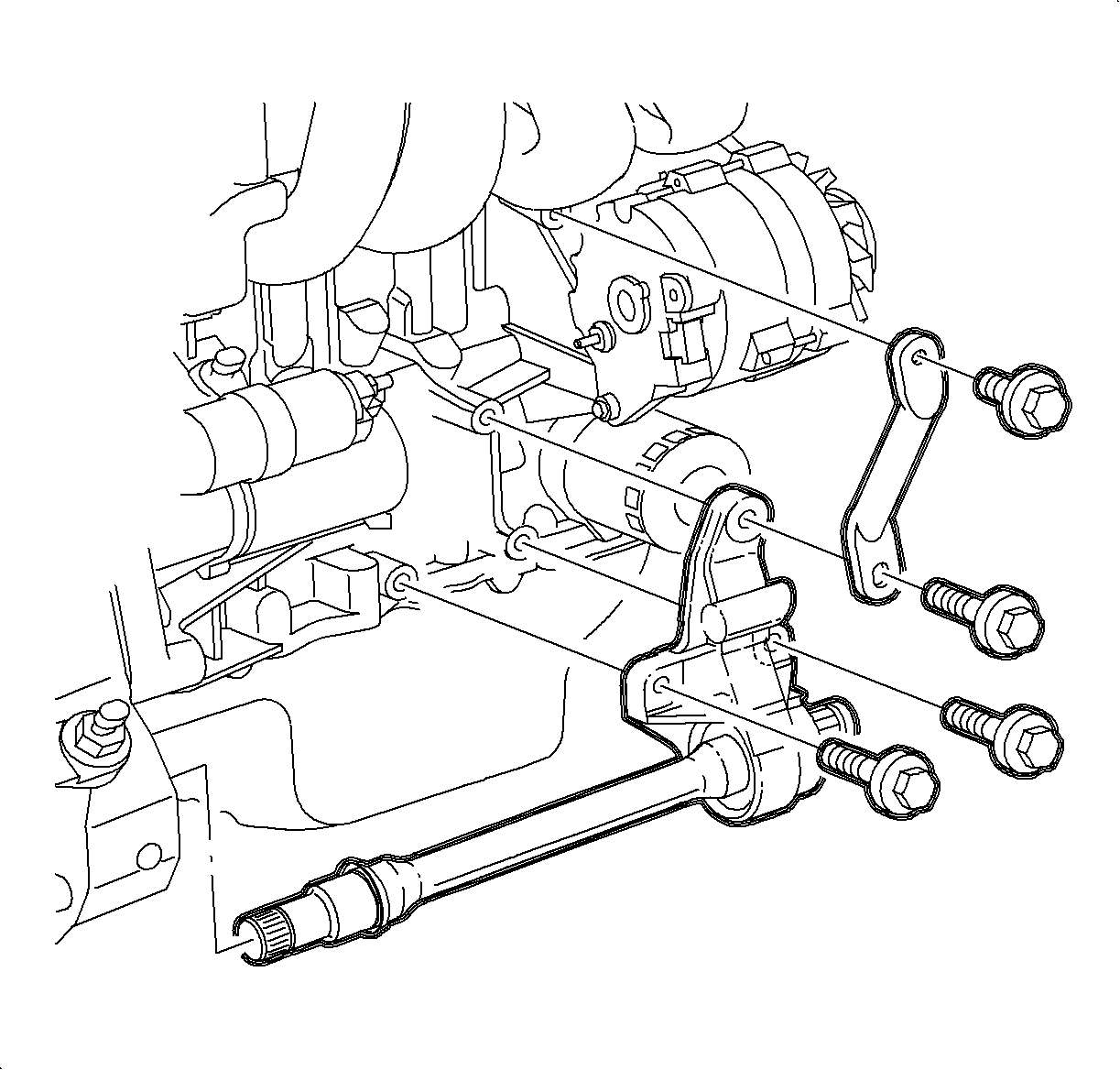
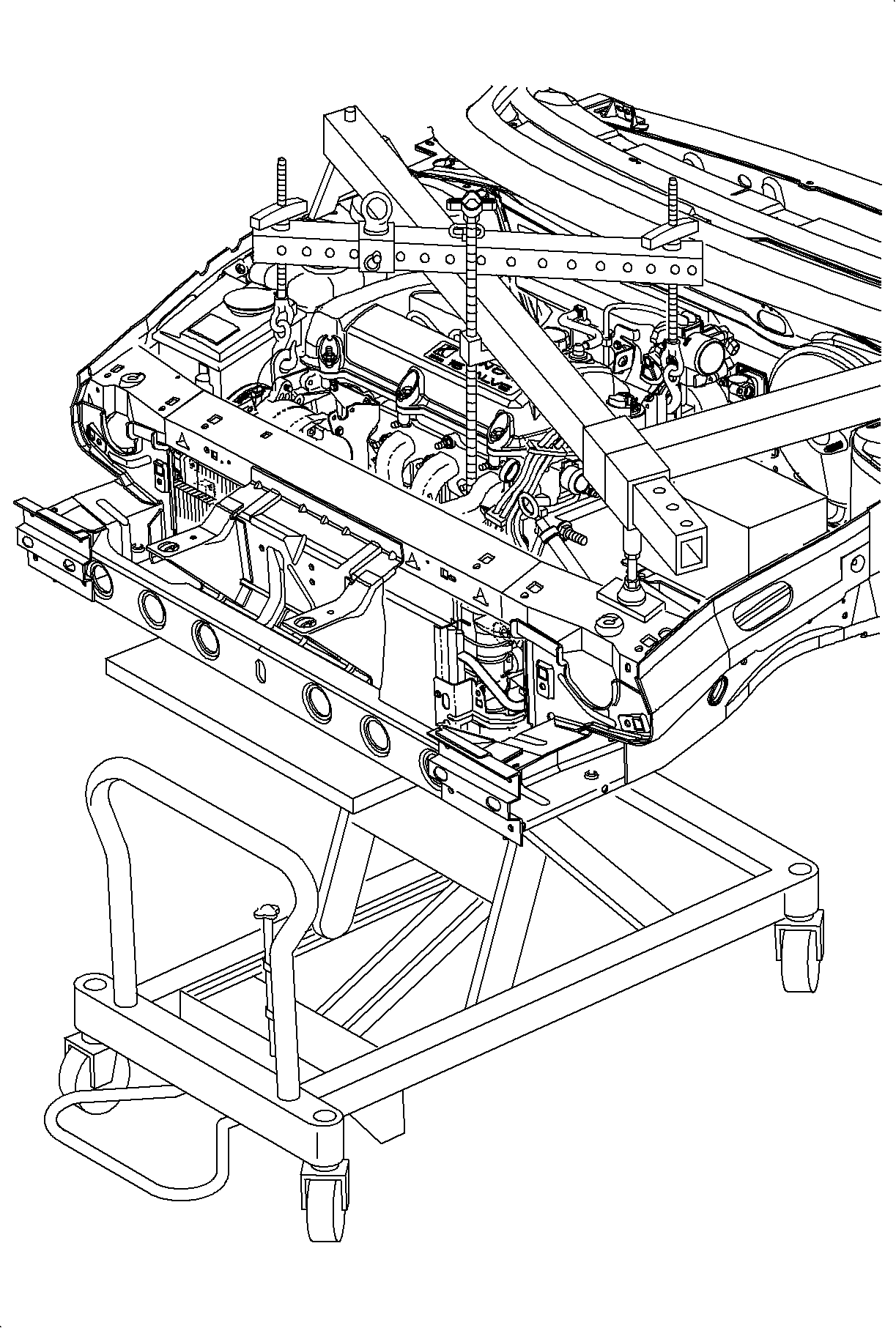
Important: To remove the cooler lines from the transaxle squeeze the plastic tabs at the transaxle connector and pull the line out of the connector. The plastic retainer remains on the line.
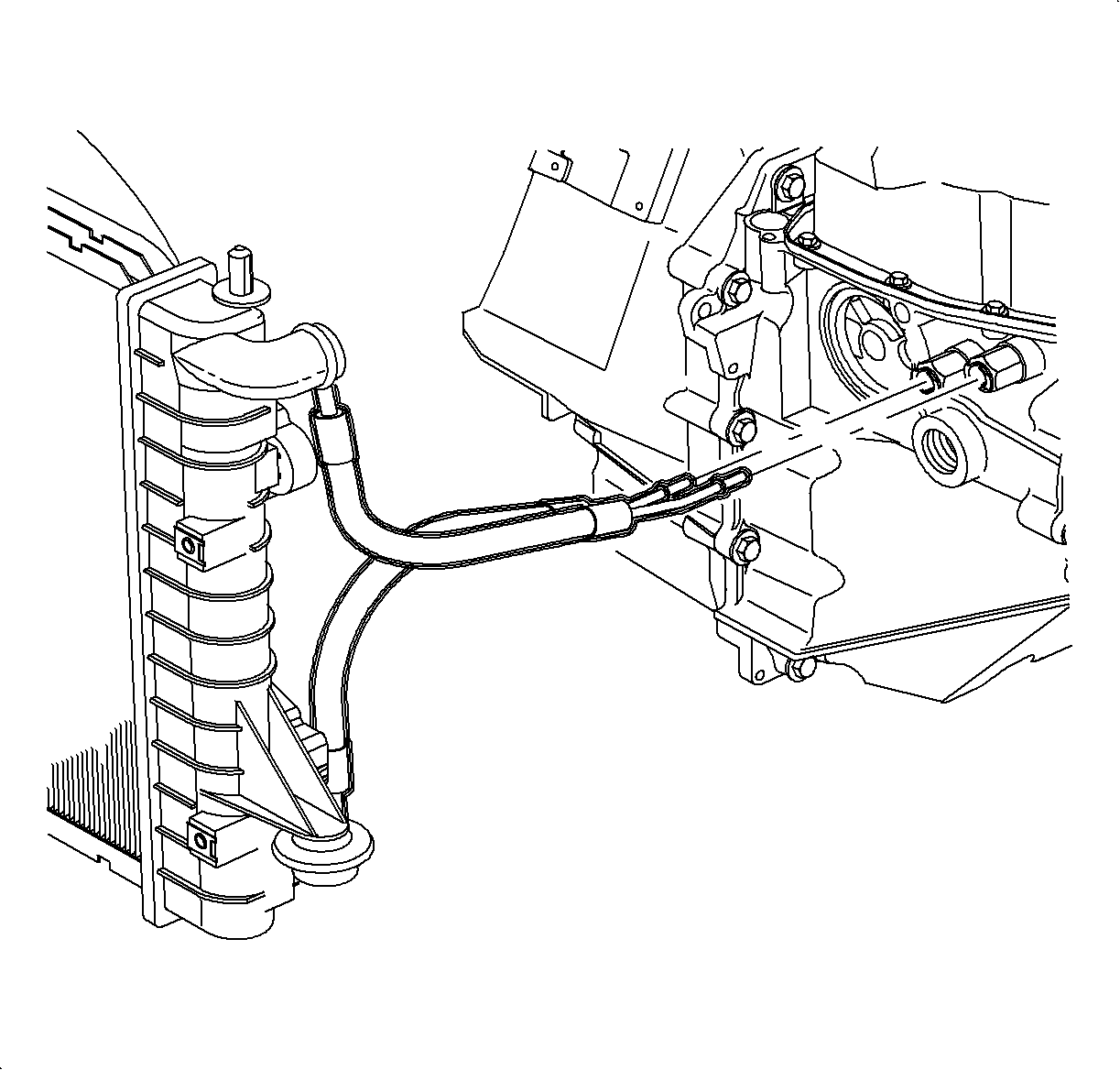
Important: Prepare for a lot of fluid leakage from the transaxle cooler line fittings once the lines are disconnected.
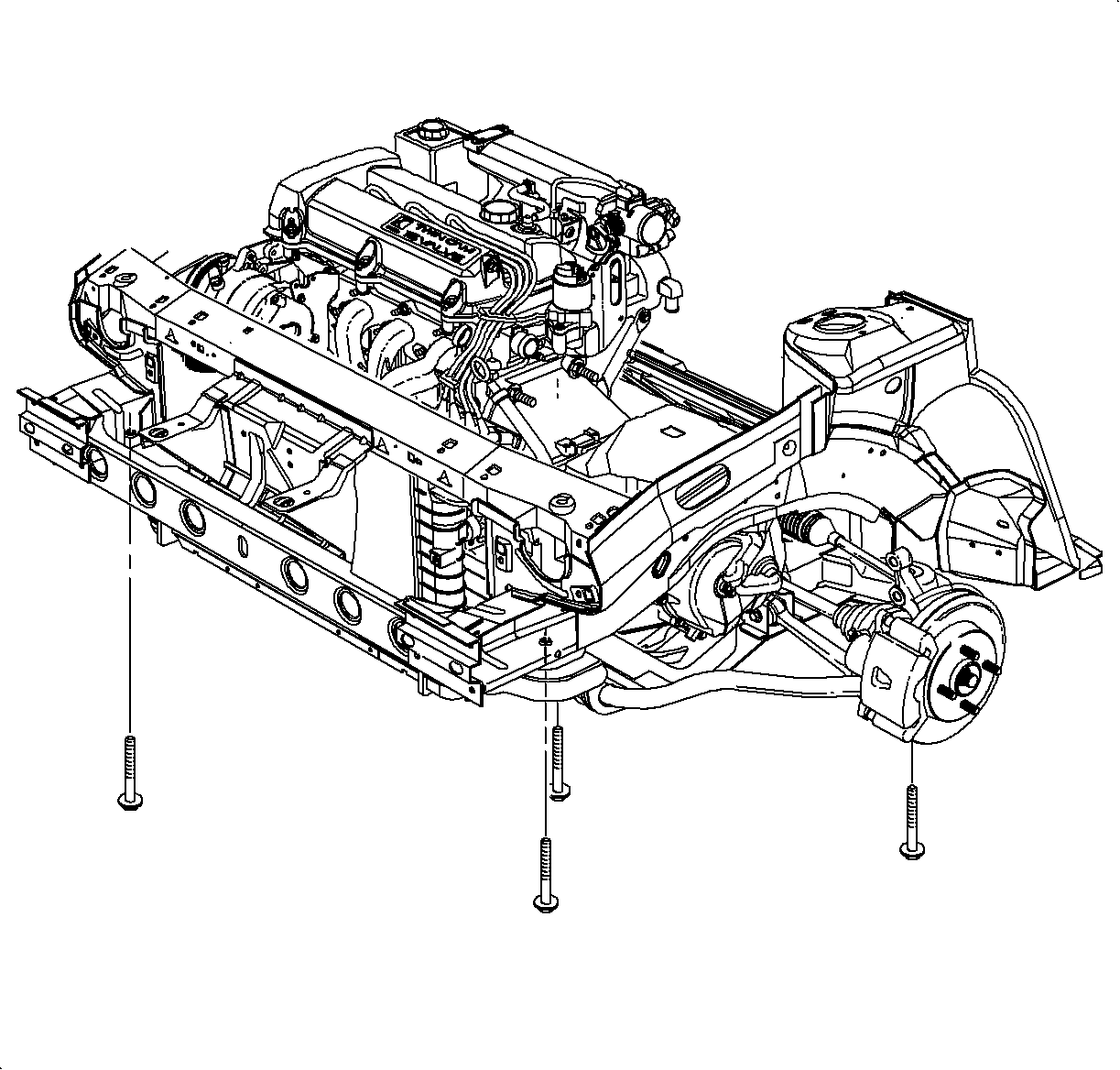
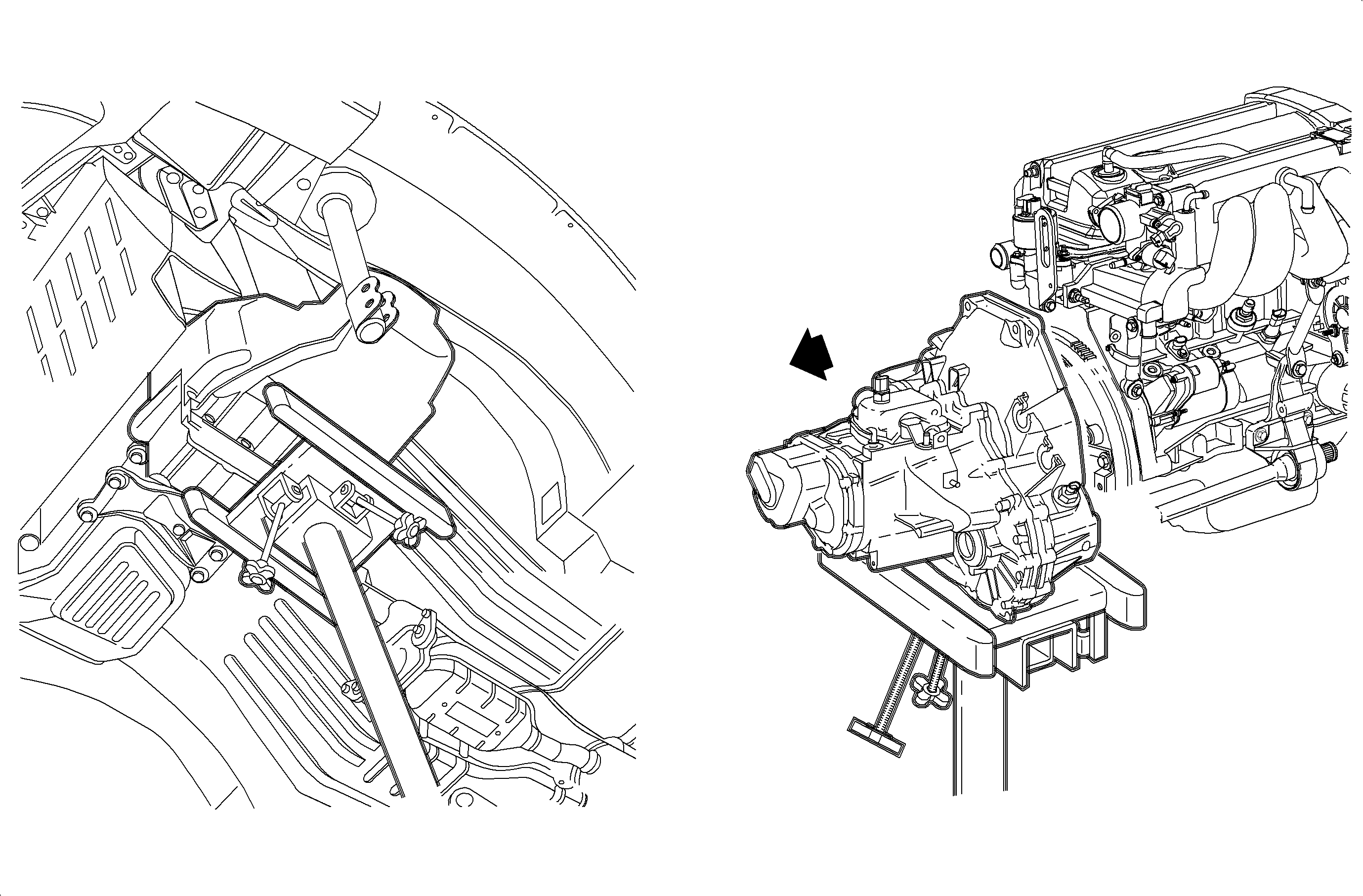
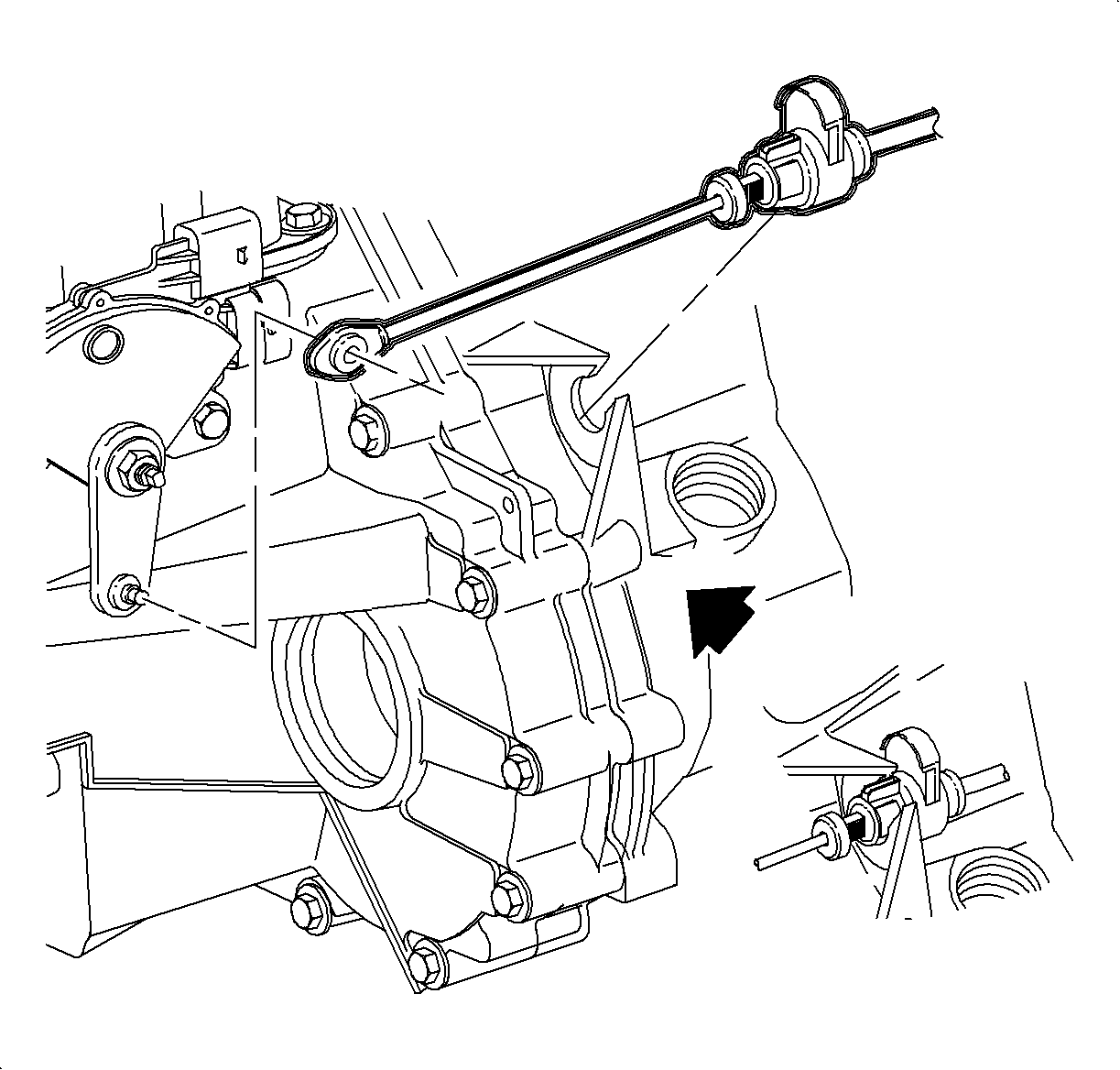
Installation Procedure
- Flush the transaxle oil cooler using the Oil Cooler Line Flusher . Refer to tool manufacturer's instructions, included with tool.
- Tap out the electronic ignition (EI) module holes with a M6 x 1.0 mm tap.
- Place the transaxle securely on the jack and position it under the vehicle. Install the axle seal protector into both sides; use Axle Seal Protector . Raise the transaxle high enough to connect the shifter cable.
- Connect the shifter cable to the transaxle gear selector lever and insert it into the converter housing.
- Install the 2 lower transaxle-to-engine bolts.
- Insert the seal protector, indicated by the arrow, and install the left side axle into the transaxle.
- Remove the seal protector.
- Remove the transaxle jack.
- Insert the seal protector and install the intermediate shaft into the transaxle.
- After the splines clear the seal protector but before snapping the axle into place, remove the seal protector tool.
- Position the intermediate shaft support and install the 2 bolts.
- On DOHC-LL0 vehicles, position the intake manifold support bracket and install the intake bracket to the intake manifold bolt.
- Install the intake bracket to the intermediate shaft support nut.
- Perform a cooler line flush using the SA9165T . Follow the instructions printed on the tank for the proper procedure. This step must be done when rebuilding or replacing the transaxle in order to remove all debris.
- Connect the transaxle cooler lines to the transaxle by pushing the lines into the cooler fittings until they bottom out.
- Clean and lubricate the ball joint threads.
- Place the cradle on the lift and raise it to the vehicle. Place the lower ball joint into the knuckles when raising the frame up.
- Install the 2 rear frame-to-body fasteners.
- Position the frame-to-body at the 2 front frame-to-body fasteners.
- Tighten the 4 frame-to-body fasteners.
- Remove the powertrain support dolly.
- Lower the vehicle enough to allow underhood access and remove the Engine Support Fixture, 3-Bar .
- Install the transaxle strut, transaxle bracket-to-case bolts, if removed.
- Install the transaxle strut-to-midrail bracket fastener.
- Tighten the transaxle strut-to-transaxle bracket fastener, if removed.
- Remove the cooling module support wire.
- Install the EI module and bolts.
- Connect the electrical connector to the EI module. Push until a click is heard and pull back to confirm a positive engagement.
- Connect the spark plug wires to the coil towers. Press the spark plug wire boots firmly into place.
- Install the top 2 transaxle-to-engine studs.
- Connect electrical connectors to the transaxle.
- Adjust the control cable. Refer to Shift Control Cable Adjustment .
- Install the air induction system.
- Install the battery tray.
- Install the battery tray bolts.
- One bolt is located in the fender well.
- Ensure the battery tray is clean.
- Ensure that the battery cable ends are clean and free of corrosion. Clean with a wire brush.
- Ensure that the battery is in good physical condition, e.g., no cracks, or obvious damage, and that the terminals are clean.
- Install the battery carefully in the battery tray; ensure that the terminals do not short against any metal during the installation.
- Install the battery hold-down retainer, locking the battery into the tray. Install and tighten hold-down retainer nut and screws.
- Raise the vehicle on the hoist.
- Install the transaxle lower mount-to-cradle fastener.
- Install the 2 engine strut frame bracket-to-frame fasteners.
- Remove the steering gear support wire.
- Install the steering gear-to-frame attachment fasteners. Power steering gear shown, manual similar.
- For RHD DOMESTIC vehicles only.
- Connect the brake line-to-cradle retainer.
- Install the torque converter to flex plate bolts.
- Install the dust cover and install the dust cover to converter housing bolts.
- Install the engine to transaxle stiffening brace and install the brace-to-engine and transaxle bolts.
- Position the exhaust manifold pipe into the vehicle.
- Install the exhaust manifold pipe-to-exhaust manifold fasteners and tighten.
- Install the intermediate exhaust pipe-to-three way catalytic converter flange fasteners.
- Install the front exhaust pipe clamp support to engine stiffening bracket bolts and the pipe clamp bolt, if removed.
- Install the nut to the lower ball joint, and tighten.
- After tightening, if necessary, tighten the nut additionally to align the slot in the nut with the cotter pin hole in the ball joint. Install the cotter pin.
- Install the right side, left side, and front splash shield to frame fasteners. LHD shown, RHD similar.
- On coupes, install the right and left lower fascia brace to cradle J-nuts.
- Position wheels onto hubs.
- Install the wheel nuts and tighten in a crisscross pattern. Repeat the tightening pattern to ensure the torque is correct.
- Install the drain plug.
- Connect the positive battery cable first.
- Connect the negative battery cable last.
- Fill the transaxle slowly or use a vented funnel.
- Fill the transaxle to the proper level using Saturn Transaxle Fluid.
- Verify the fluid level. Refer to Transmission Fluid Check in this service manual.
- Before driving the vehicle after replacing or rebuilding a transaxle, use the service stall system or Scan tool to reset adaptives. Refer to the Learn-In procedure located at the beginning of diagnostic charts in this service manual.
- Perform a vehicle alignment. Refer to Alignment in Wheels and Tires section of the Chassis Service Manual.


Raise the transaxle into the vehicle.
Notice: Refer to Fastener Notice in the Preface section.
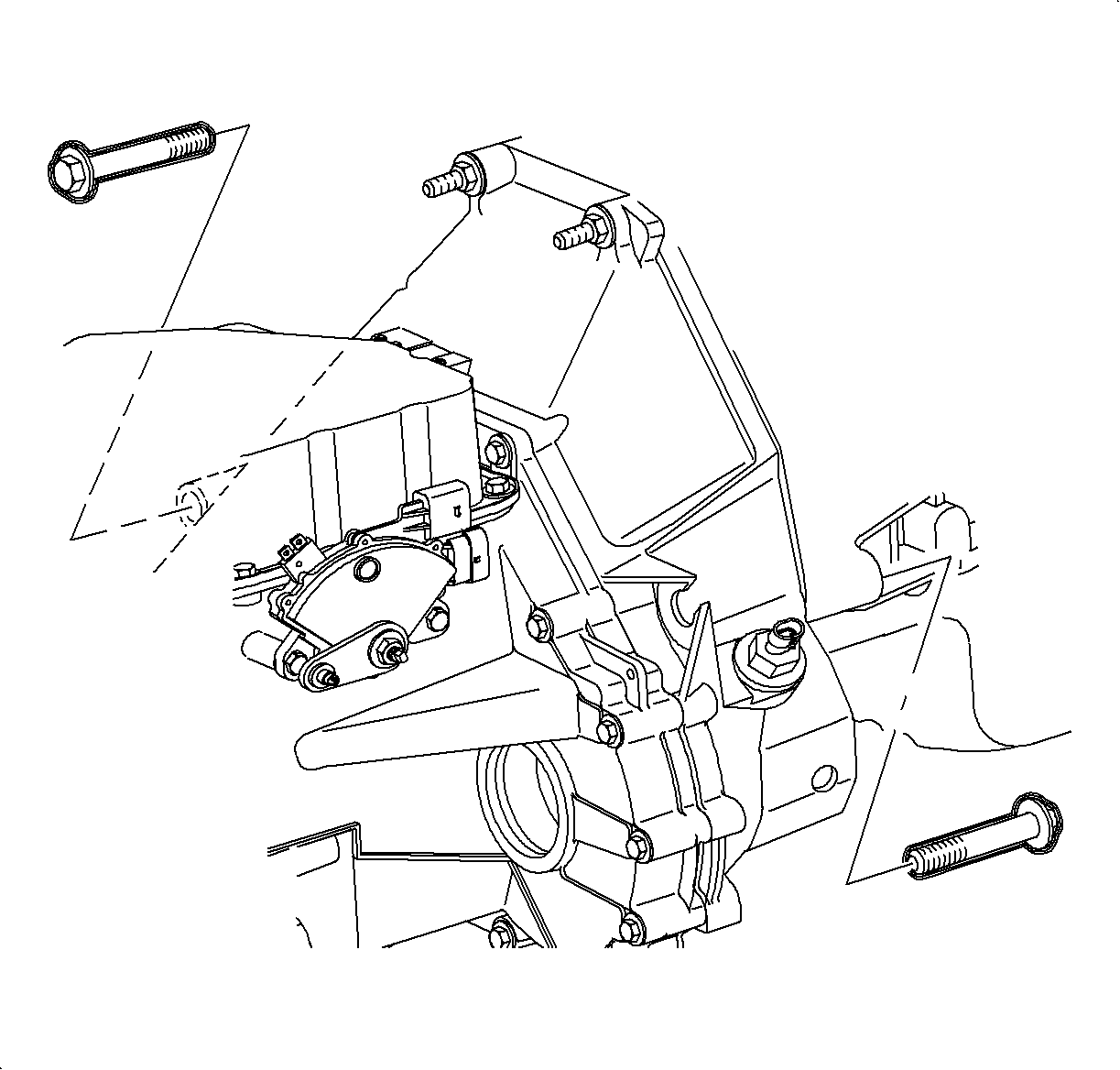
Tighten
Tighten the transaxle-to-engine bolts to 130 N·m
(96 lb ft).
Notice: Use caution not to damage seal while installing axle into transaxle.
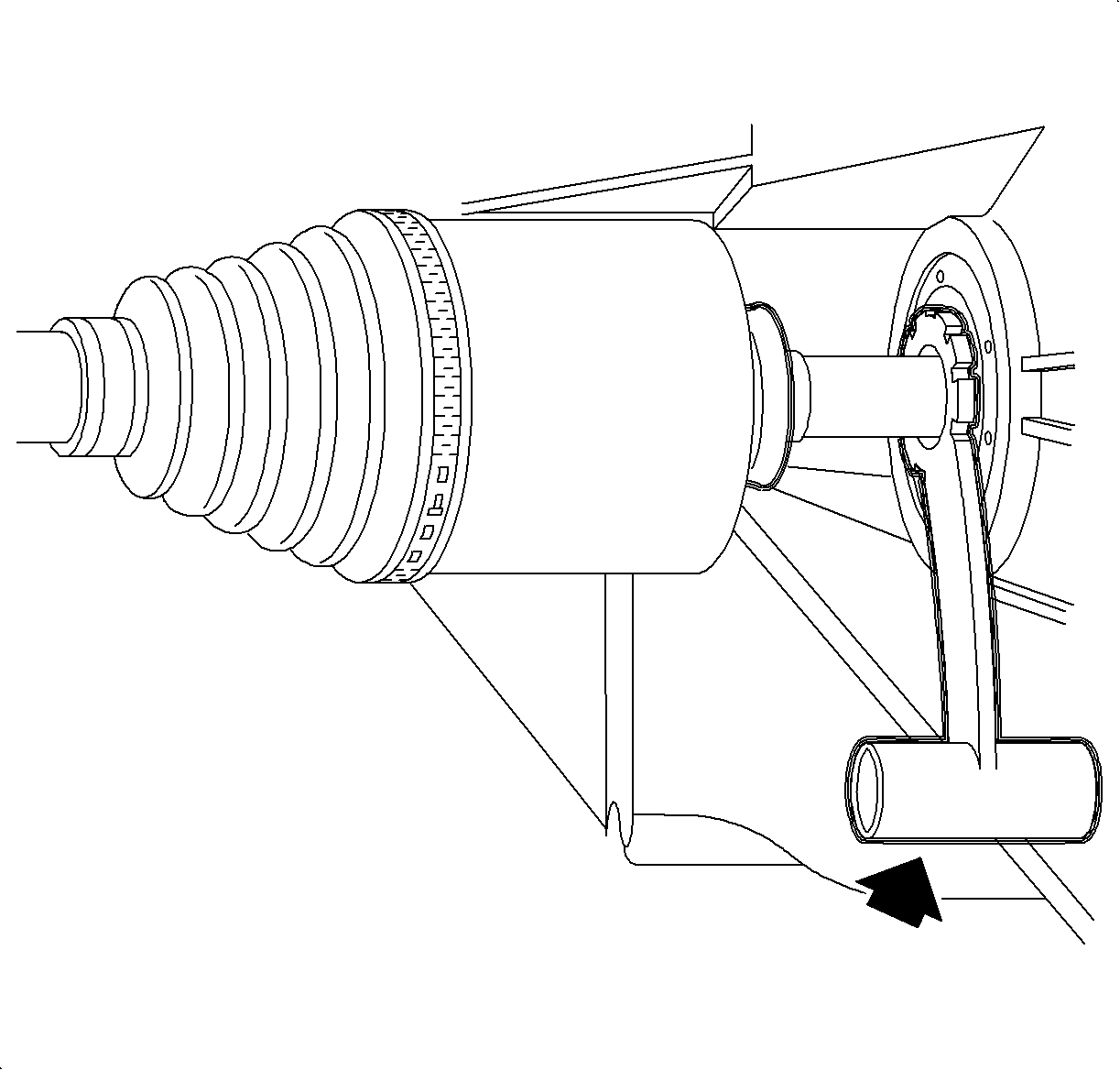

Tighten
Tighten the intermediate axle shaft support bracket-to-engine
block bolts to 54 N·m (40 lb ft).
Tighten
Tighten the intermediate axle shaft support bracket-to-engine
block nut to 54 N·m (40 lb ft).


Caution: Refer to Vehicle Lifting Caution in the Preface section.
Important: Ensure that the following parts are correctly
positioned when raising the frame into vehicle.
• The lower control arm bar studs-to-knuckle. • The cooling module support bushings. • The engine strut frame bracket. • The transaxle mount.
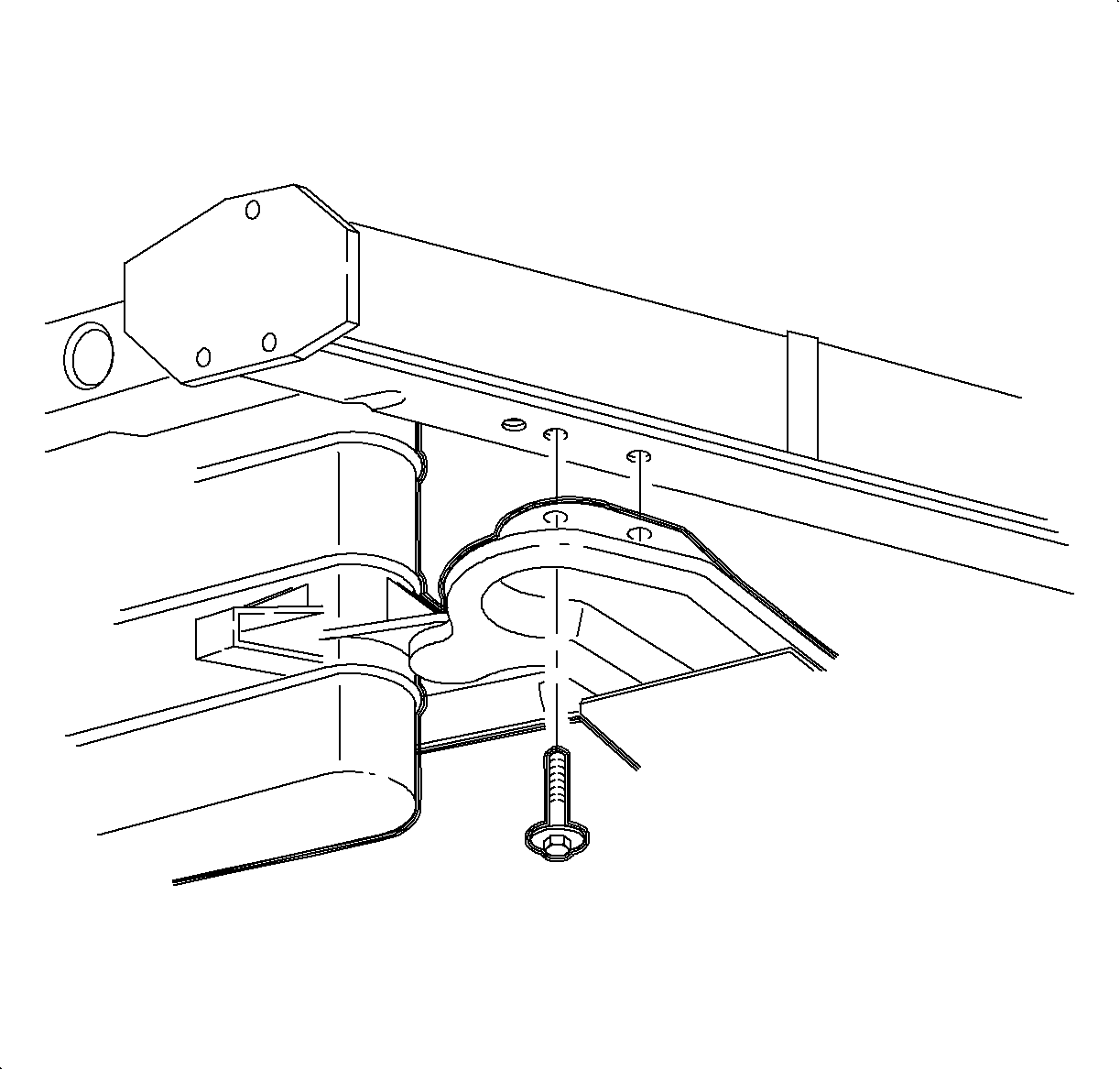
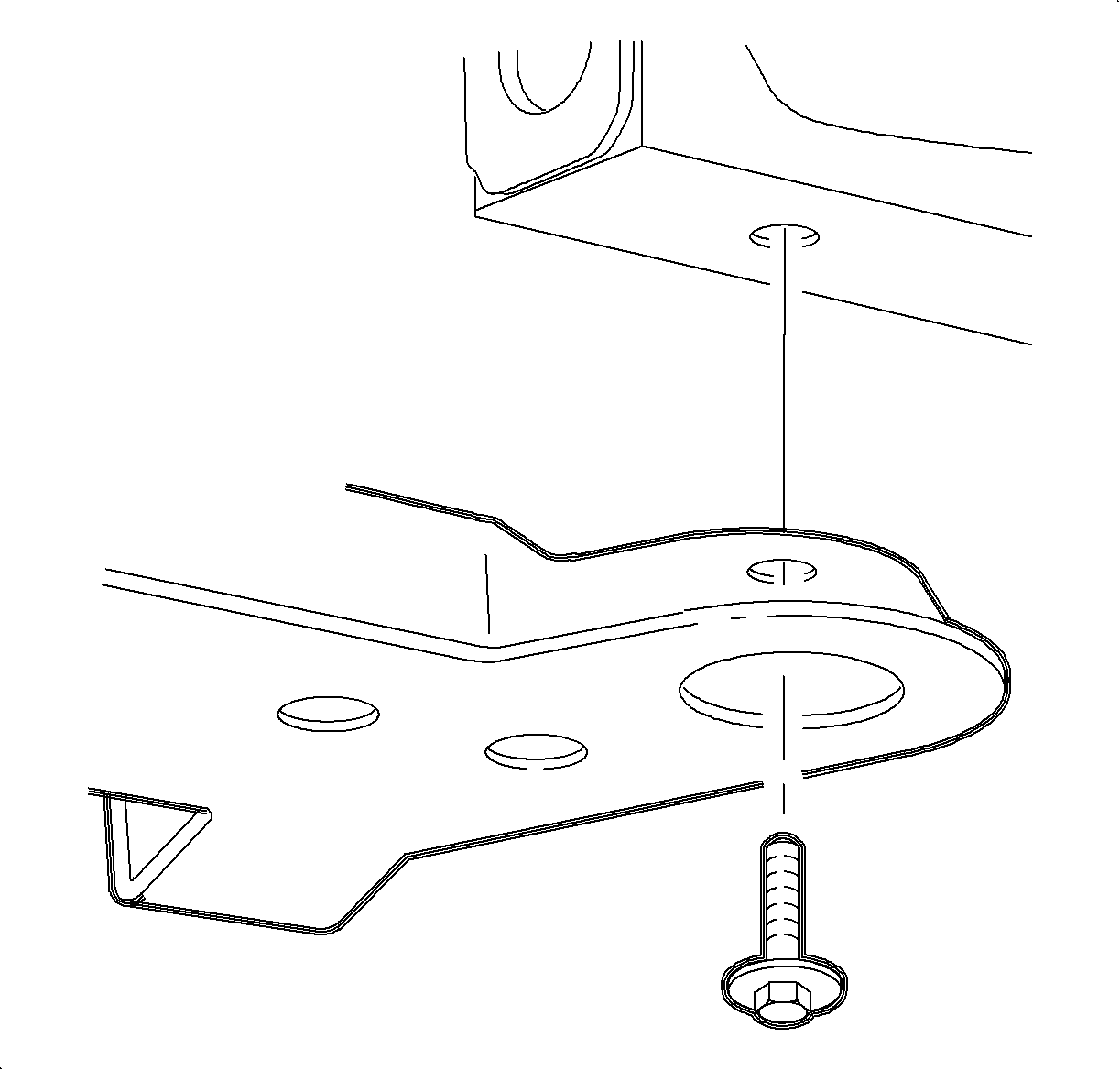
Tighten
Tighten the frame-to-body fasteners to 210 N·m
(155 lb ft).
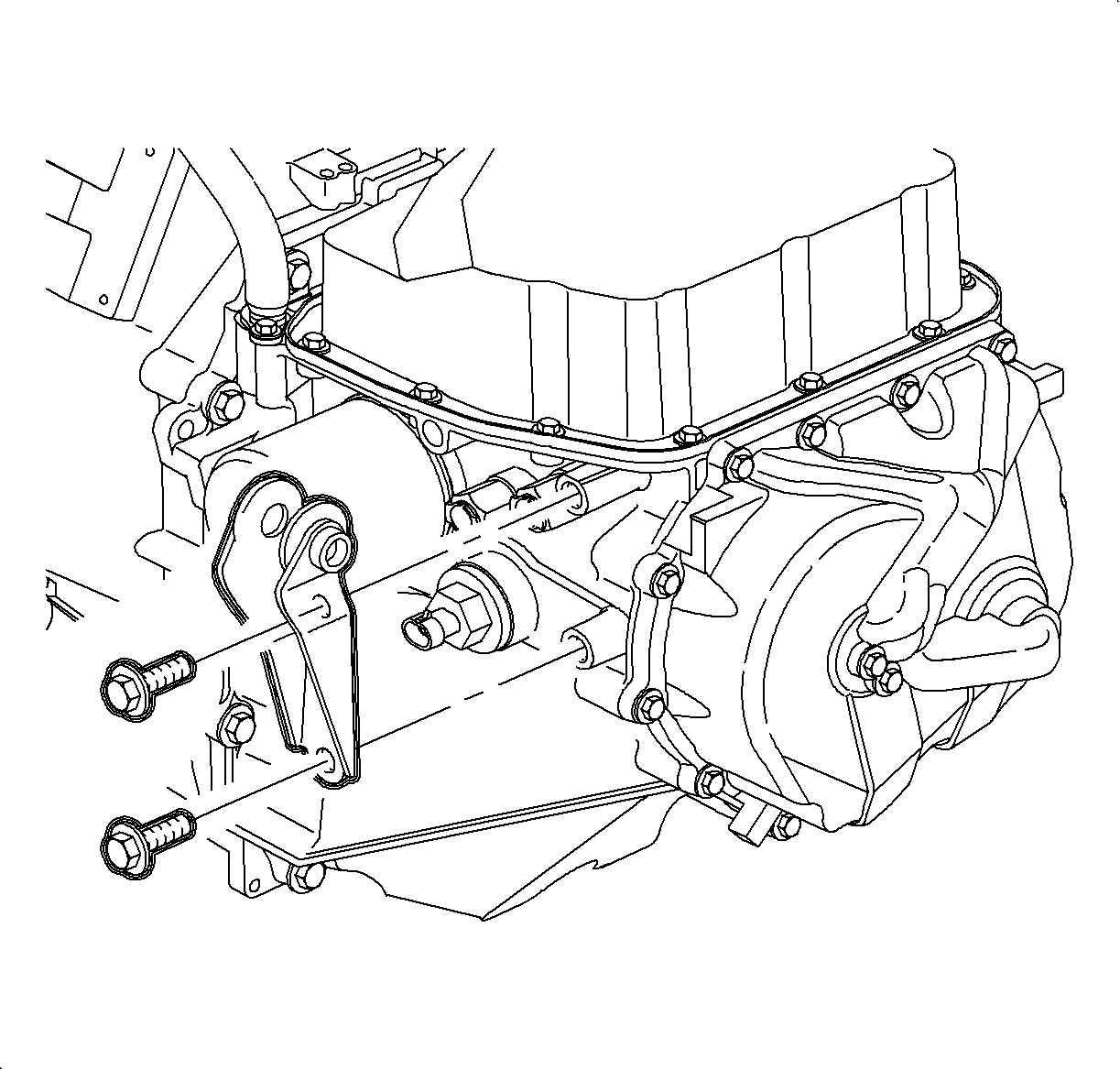
Tighten
Tighten the transaxle bracket-to-case bolts to 54 N·m
(40 lb ft).

Tighten
Tighten the transaxle strut-to-midrail bolt to 70 N·m
(52 lb ft).
Tighten
Tighten the transaxle strut-to-transaxle bracket
bolt to 70 N·m (52 lb ft).

Notice: Use extreme care when installing the electronic ignition module bolts make sure the bolt head is seated on the electronic ignition module when the torque specification is reached. If the bolt head is not seated on the electronic ignition module, remove the bolt and tap the hole to clean any debris from the threads.
Notice: Over-torquing of the ignition module will result in cracking the coil housing and damaging the coil.
Tighten
Tighten the ignition module-to-converter housing
bolts to 8 N·m (71 lb in).
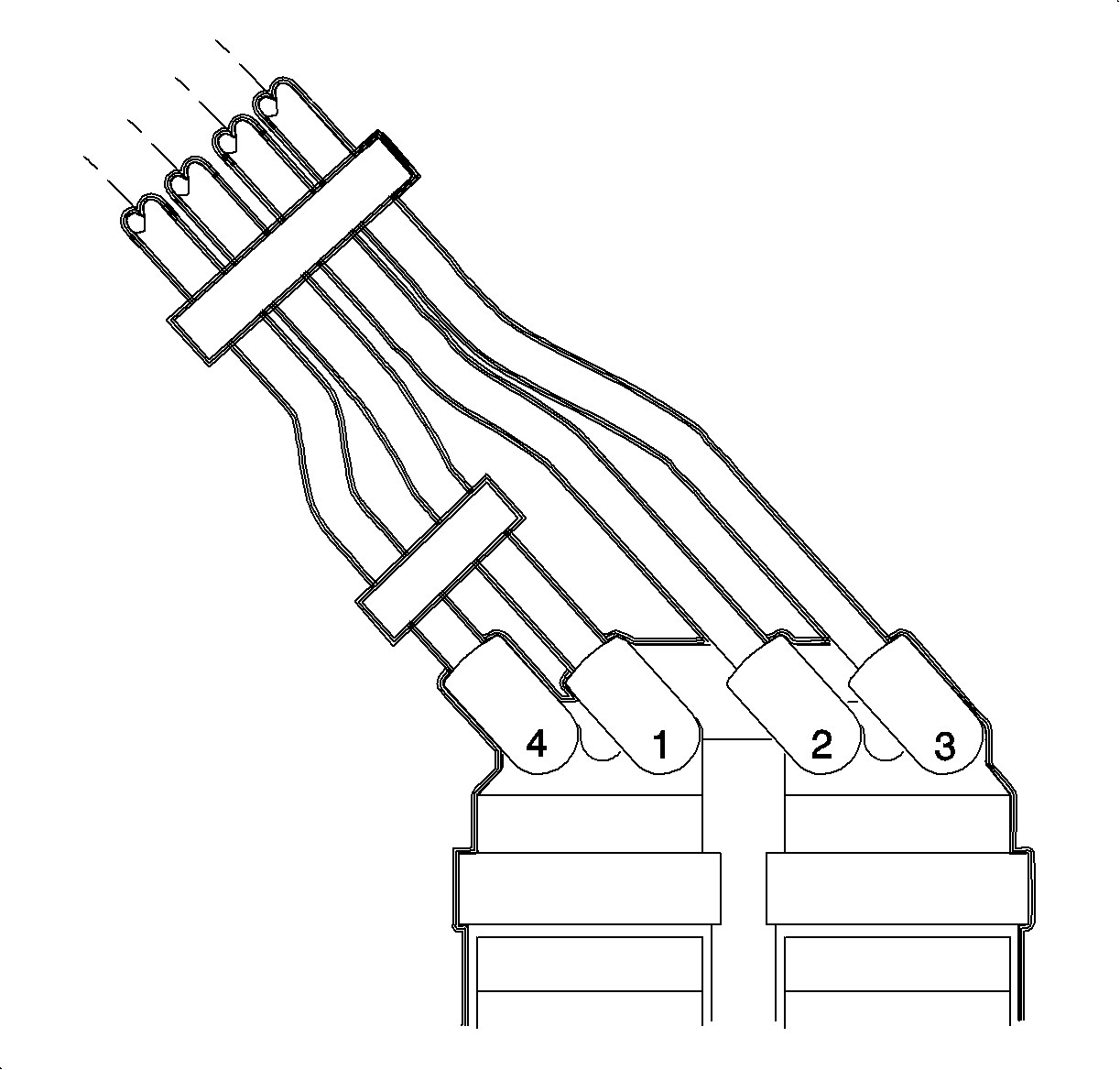
Important: Orientation of the wires to the EI module is critical to the operation of both the module and on-board diagnostics. The orientation is 4, 1, 2, 3 respectively from left to right.
Tighten
Tighten the transaxle-to-engine studs to 100 N·m
(74 lb ft).
| Notice: Do not over-tighten or damage to the connector plate may occur. |
Tighten
Tighten the transaxle solenoid harness connector
bolt to 2.5 N·m (22 lb in).
| • | The output speed and input speed sensors harness connectors. |
| • | The transaxle fluid temperature sensor harness connector. |
| • | The trans range switch harness connectors. |
| • | The 2 ground terminals to the top two converter housing nuts. |
Tighten
Tighten the ground terminal-to-converter housing
nuts to 25 N·m (19 lb ft).
| • | The ground wire to neutral (selector) switch. |
| • | Clip the oxygen sensor wire to the converter housing. |


Tighten
Tighten the battery tray-to-frame rail bolts to
10 N·m (89 lb ft).

Tighten
Tighten the battery case bracket stud and nut to
9 N·m (80 lb in).
Caution: Refer to Vehicle Lifting Caution in the Preface section.

Tighten
Tighten the transaxle strut frame bracket-to-frame
nut 50 N·m (37 lb ft).
Important: To ensure proper powertrain alignment ensure that all other mounts have been torqued.
Tighten
Tighten the engine strut bracket-to-frame fastener
to 50 N·m (37 lb ft).

Important: For step 44, LHD illustration shown first, RHD Domestic illustration shown second.
Tighten
Tighten the steering gear-to-frame fasteners to
50 N·m (37 lb ft).
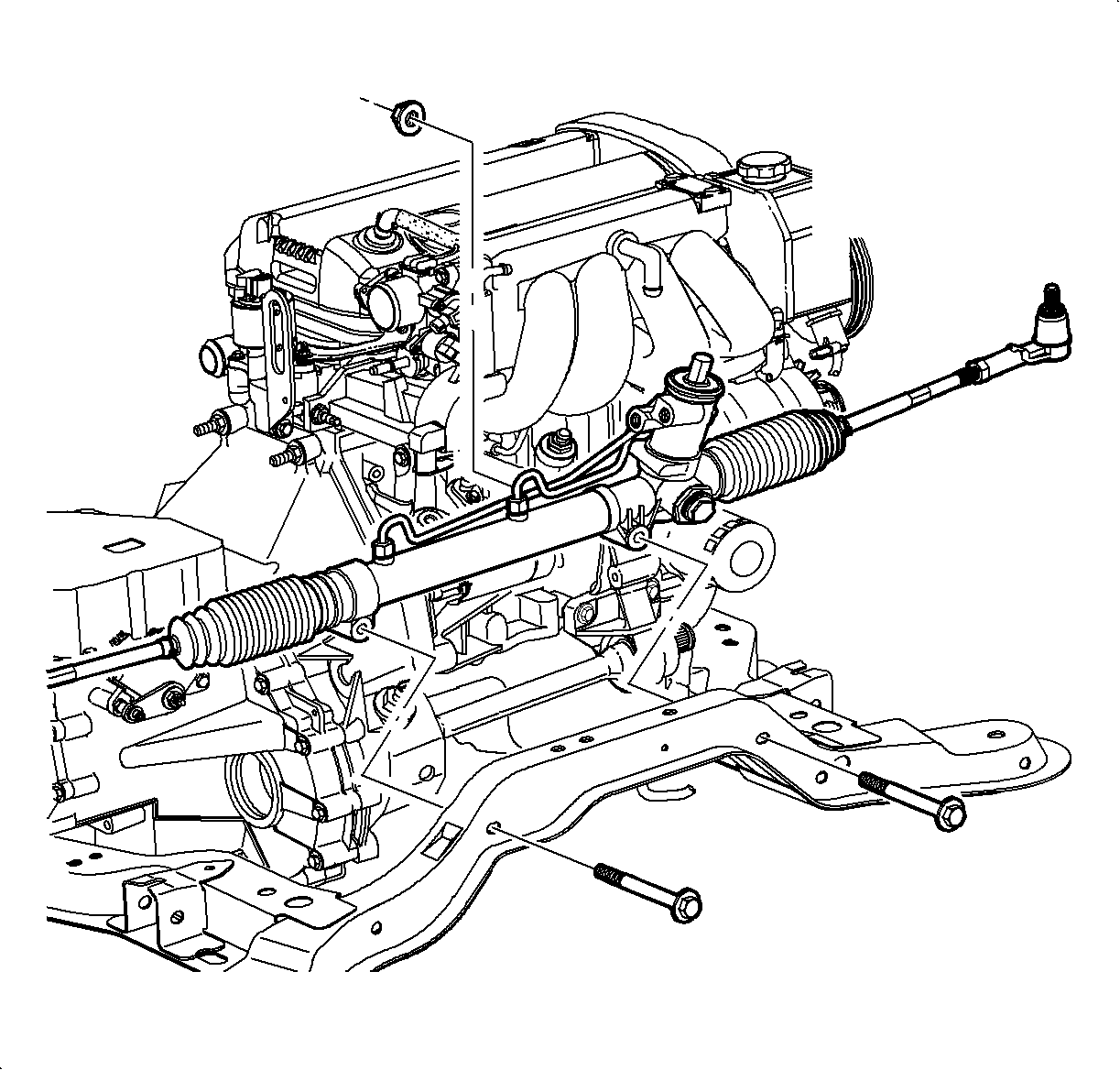


Tighten
Tighten the torque converter-to-flexplate bolts
to 70 N·m (52 lb ft).
Tighten
Tighten the flywheel housing cover-to-converter
housing bolts to 11 N·m (8 lb ft).

Tighten
Tighten the engine-to-transaxle stiffening brace
bolts to 54 N·m (40 lb ft).
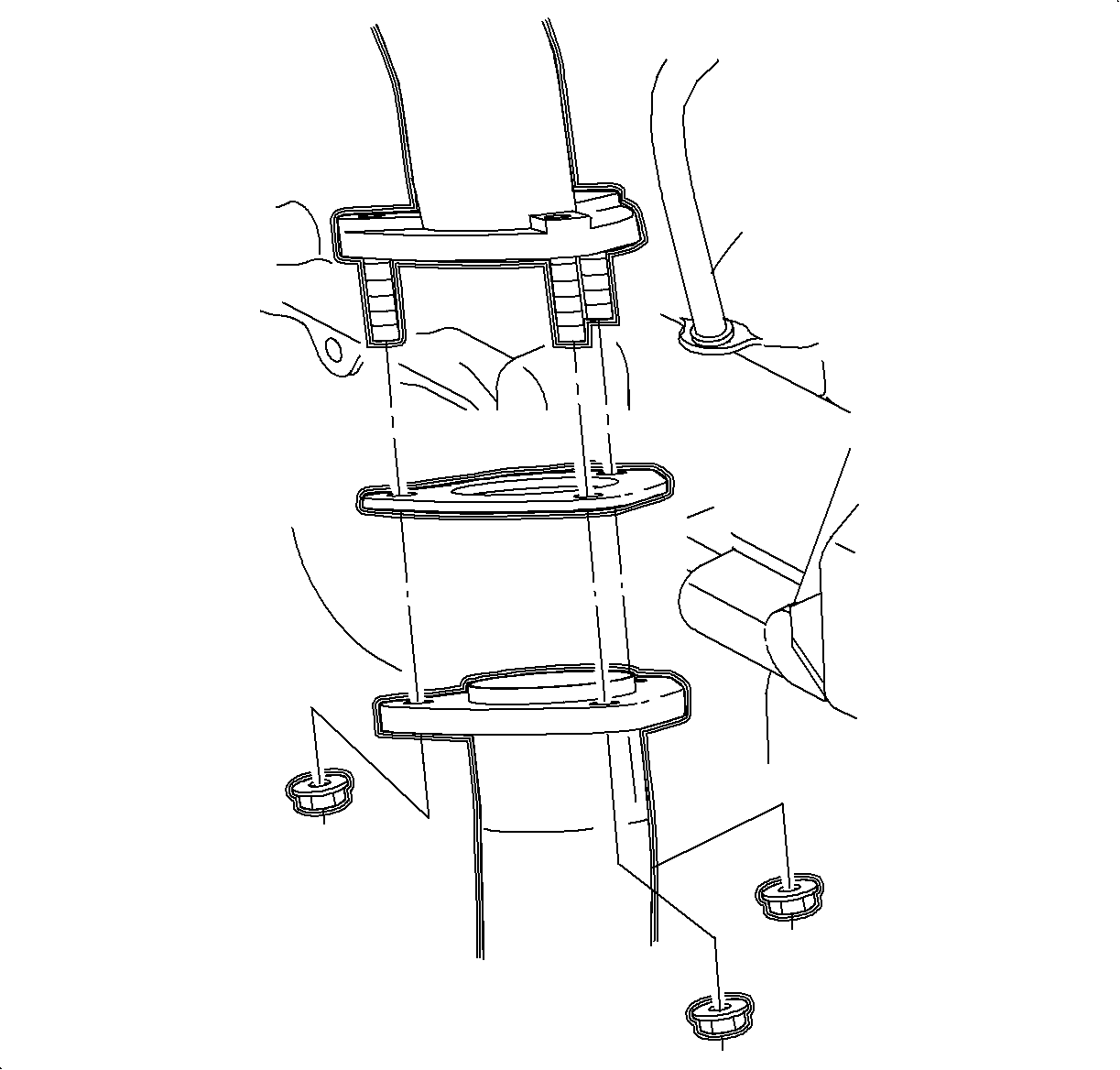
Tighten
Tighten the exhaust pipe front-to-manifold nuts
to 31 N·m (23 lb ft).

Tighten
Tighten the front exhaust pipe-to-catalytic converter
nuts to 25 N·m (18 lb ft).
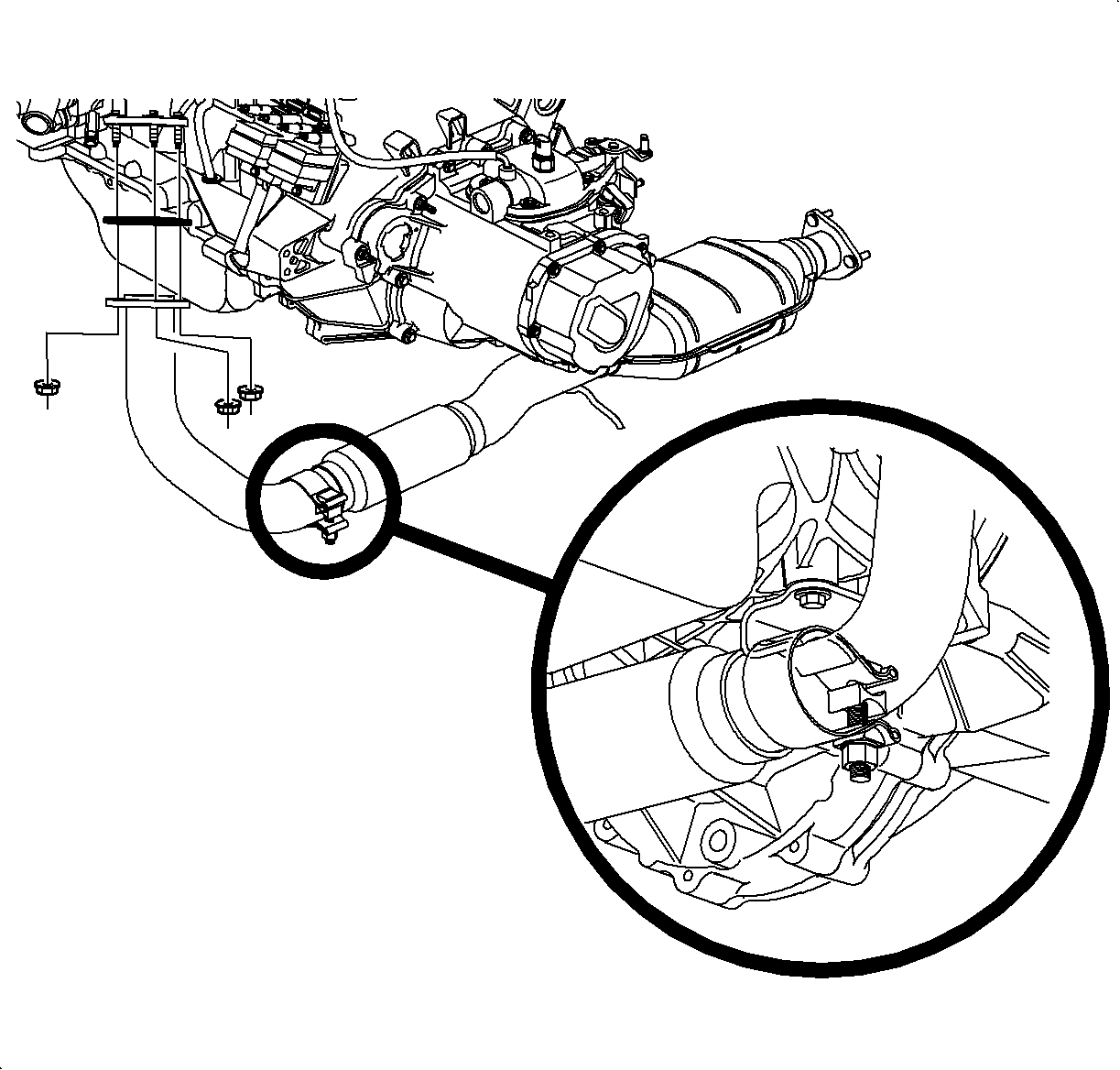
Tighten
| • | Tighten the clamp support-to-engine stiffening bracket to 31 N·m (23 lb ft). |
| • | Tighten the clamp support-to-front exhaust pipe to 60 N·m (44 lb ft). |

Tighten
Tighten the lower ball joint-to-steering knuckle
nut to 75 N·m (55 lb ft).

Important: For step 57, LHD illustration shown first, RHD Domestic illustration shown second.
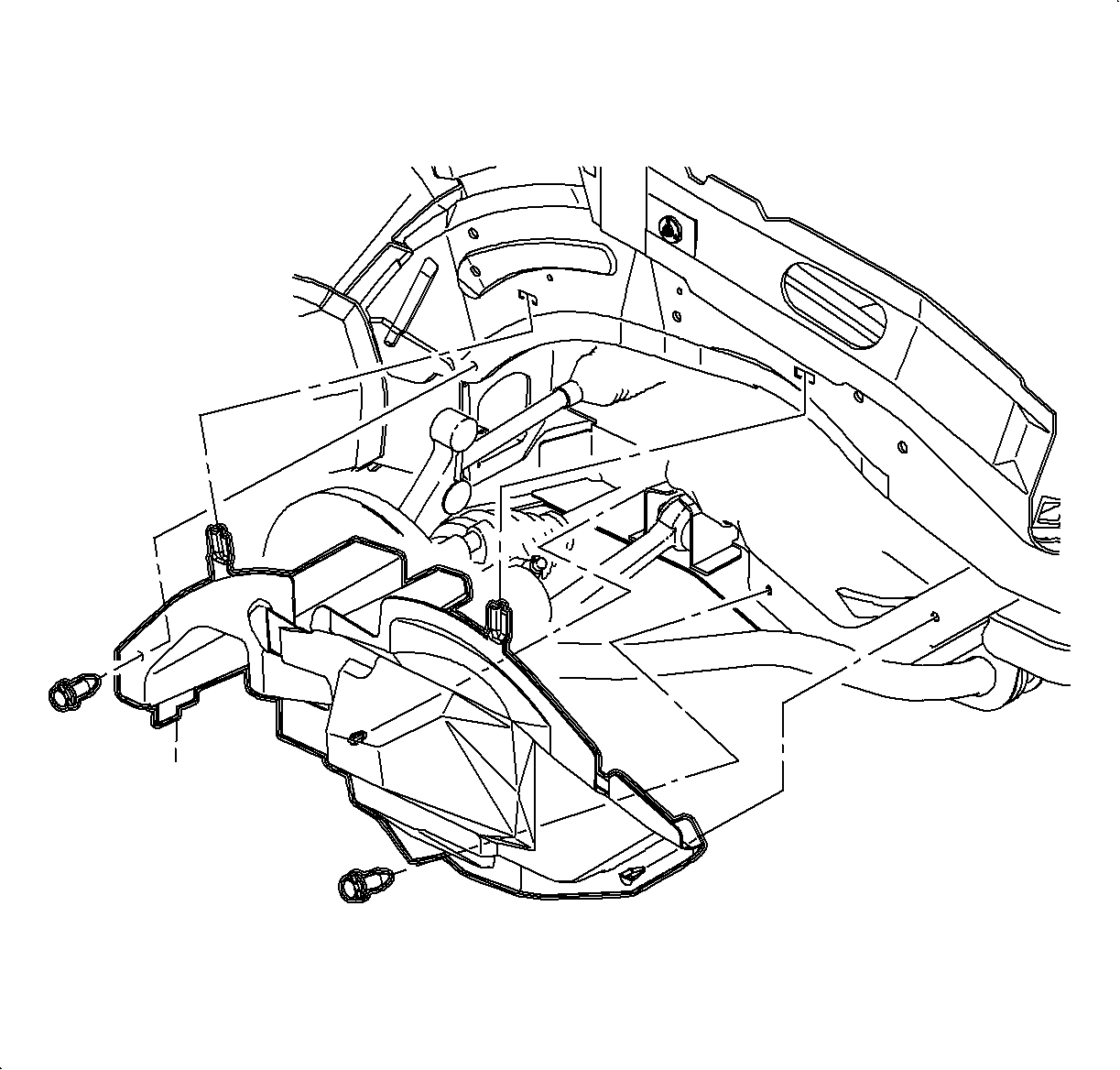
Tighten
Tighten the lower fascia brace-to-frame J-nut to
10 N·m (89 lb ft).
Notice: Before installing wheels, remove rust or corrosion from wheel mounting surfaces and brake rotors/drums. Failure to do so can cause wheel nuts to loosen in service.
Tighten
Tighten the wheel lug nuts to 140 N·m
103 lb ft).
Important: Clean and lubricate the fastener with Saturn Transaxle Fluid. Wipe off excess fluid.
Tighten
Tighten the transaxle drain plug to 30 N·m
(22 lb ft).
Tighten
Tighten the battery terminal bolts to 17 N·m
(13 lb ft).
Tighten
Tighten the battery terminal bolts to 17 N·m
(13 lb ft).
Capacity
Transaxle fluid capacities-Overhaul 7.0 L
(7.4 qt)
